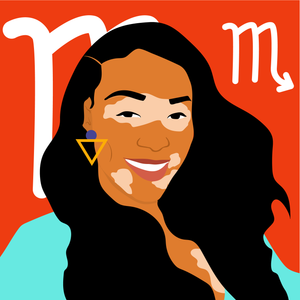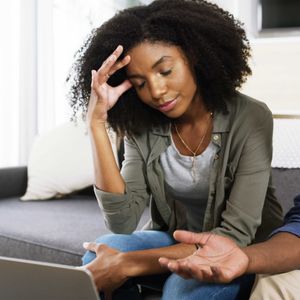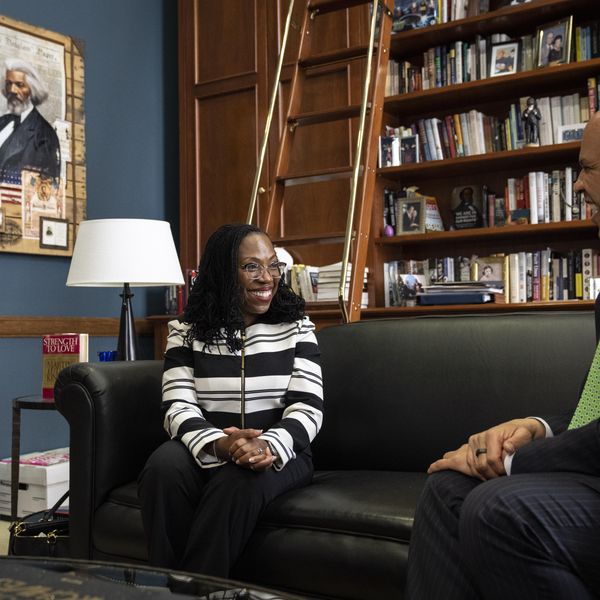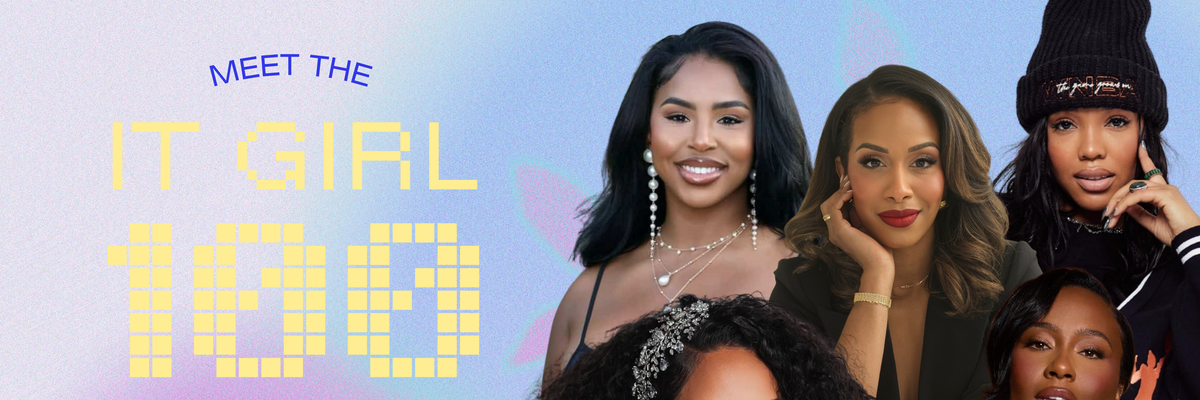Women's Voting Organization Supermajority's CIO Talks Election Issues, Minus The Drama

Voting has been a part of my life for as long as I can remember. As a child, my parents would pack my sister and me up in the car and allow us to take in the excitement of the polls during local and national elections.
Years later, in 2008, I voted in my first election for Barack Obama and emotionally celebrated his win surrounded by fellow classmates from Clark Atlanta, Spelman, and Morehouse.
I remember calling my grandmother, who has since transitioned, and hearing the passion in her voice when she explained how she’d never thought she’d see something like this happen and how much it meant to her. As I reflect, I realize it’s a combination of memories like this that undoubtedly encouraged my will to vote.
However, as an adult, my reasoning behind the practice has developed. It’s no longer just about “the right thing to do.” I feel a responsibility to myself and my future to know the issues, how they impact me, and make a difference for others.
In the times we’re in, there's so much “news” everywhere. It’s hard to distinguish fact from opinion and bias from beliefs. This is why it was such a pleasure speaking with Jara Butler, Chief Impact Officer of Supermajority. Supermajority is an organization focused on making women the most powerful voting bloc in the country. During this authentic and informal conversation, we talked about so much.
I learned about her time working with the Obama campaign and how she masterfully worked in multiple industries, and we shared some of our favorite female rap moments. However, in the snapshot you’ll read, we focused on the issues. Jara walked xoNecole through what’s most affecting women of color in this election and what we can do to be more aware. Whether you’re a politics girlie or like me, just trying to gain more insight, hopefully this convo connects with you.
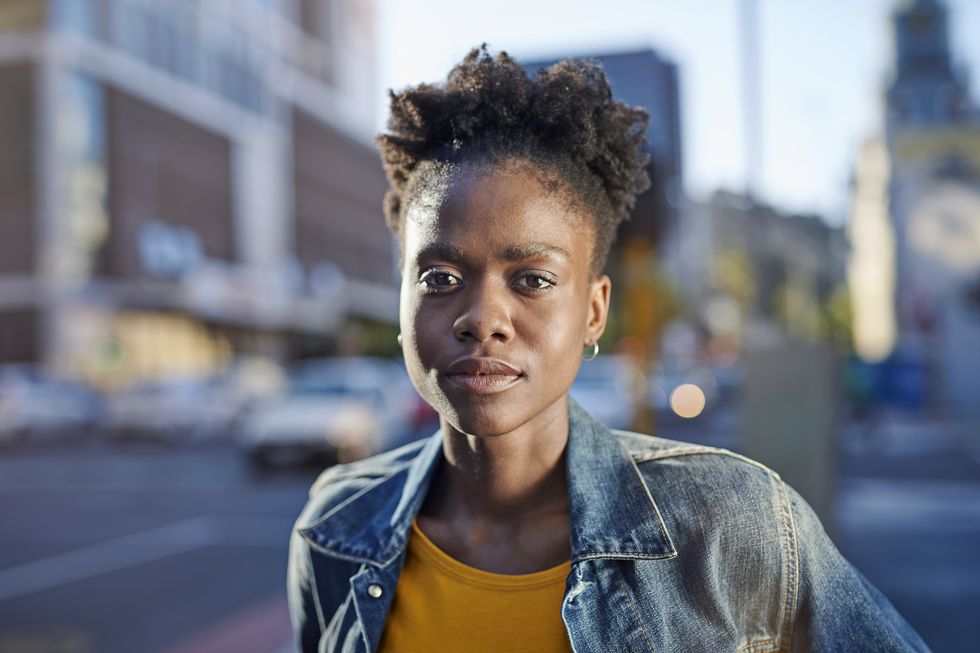
Uwe Krejci/ Getty Images
xoNecole: Let’s just jump right in. What are some of the most popular issues that you hear Black women discussing related to this election?
Jara Butler: Our sister organization, the Supermajority Education Fund, recently did some research specifically looking at young women in the age group 18 to 35, and young Black women identified their economic well-being as a priority. Right now, we're in a place where a lot of us, especially young Black women, are finding that meeting those basic needs are harder and harder.
Secondly, is Project 2025. I think Black women see it as not just something that could happen, but actively happening. For example, we’ve all been watching the case with the Fearless fund, and how it's been targeted. We know Black women are very entrepreneurial. We can go back to Madam C.J. Walker and others who have opened the door for all of us to achieve. But if those barriers are in place, we're just not going to be able to meet that.
Lastly, Repro is a very big issue. But I think looking at it holistically and not just about abortion is important. Black women are more likely to talk about this from a perspective of our reproductive health care and the lack of access due to medical racism. As a Black woman myself, who's over 40, a lot of the changes that I am making in my life are because I have to do everything I can to put myself in a position, because I know no matter what my economic status is, if I walk into a medical office, there's a good chance I'm gonna face medical discrimination. Breast cancer screenings, colon cancer screening, ovarian cancer screening, cervical cancer screenings - all of those are part of that network of reproductive health.
xoN: Another issue I’d love your insight into is our missing girls. I think it's so unbelievable how much this is swept under the rug. There are so many stories about Black women that are continuing to go missing; I don’t understand how that’s not a bigger conversation. Is this something that can be pursued on the government level and what can we do to bring more attention to this issue?
Jara: We have this list of majority rules on our website, and my favorite one is: that our government represents us. I think that we have to continue to apply pressure to our government to meet our needs. And again, women are the majority of voters. Black women, especially, are the most reliable voting bloc across all groups, and our interests right now are not being met. So yes, there is something that we can do, but I also am a big proponent of us having these conversations.
My great-grandmother was enslaved, my grandmother was born into Jim Crow, and I watched my mother face economic insecurity. I say that because, as a Black community, we have to have an internal conversation to talk about these issues, and we have to do it upfront. I think we have to get into a position of realizing that we do have power, and how we activate that power.
Our power comes from being Black folks because Black people organizing has been enough to shake up and scare people. There were laws that prevented us from congregating together, even at church, because they knew what would happen when we got together. We have to get back into that. It's not that we are not doing it, but the urgency needs to be greater. And finally, we have to get away from depending on one individual to take us there. It's gonna take all of us.
"Our power comes from being Black folks because Black people organizing has been enough to shake up and scare people. There were laws that prevented us from congregating together, even at church, because they knew what would happen when we got together. We have to get back into that. It's not that we are not doing it, but the urgency needs to be greater."
xoN: I agree completely. Now, when we started, you mentioned money. So let’s talk about it. So many of us are starting businesses and getting degrees, and I love to see it. But everyone seems to still be having a lot of the same issues around finances. What are some of the underlying reasons behind this debt that we're dealing with, and how can voting influence these challenges without getting into the individual candidates?
Jara: Hello! Let’s talk about the money! Black women have been told that if we want to move ahead, we have to have that master's degree. We have to be twice as good. So we met that measure, right? But in order to do that, we have to pay for it. Up until about the 1970s college was absolutely affordable. You could work one job and pay for college with some money left over. That has changed.
Realistically, student loans are a barrier. They are a barrier to access housing. They impact our credit, and really and truthfully, depending on how much your loans are, they could affect you paying rent. It basically creates a cycle of debt. And I have real problems with people who say, get a degree in something that's going to make money. It’s about your skills, and if you have the skills, you should be able to earn a living. That covers that.
But the fact is that student loan debt continues to increase, and there have been attempts, more than once, to try to relieve some of that pressure. The reality is that this is a squeeze. It is a conundrum, and we see efforts by the current White House administration to try to alleviate those things, even when they are stopped.
But truly, Congress needs to step in and support this, but I would take it a step further. We should be considering and looking at what it would look like if we had free community colleges. Because what we have now is two generations of borrowers, because older millennials’ children are beginning to age. Black women have the highest degree of second-degree secondary education, but we carry like 1.7 trillion in debt or something like that. I can't remember the exact number, but basically, the majority of the student loan debt is ours.
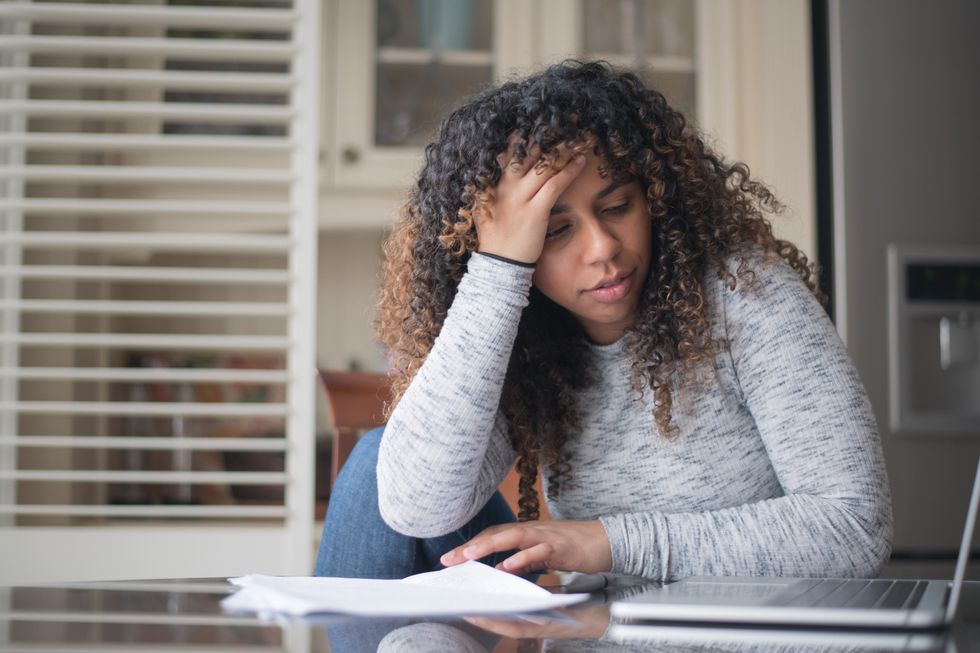
FatCamera/ Getty Images
xoN: Speaking of college, obviously there’s a lot of discussion around affirmative action in the schools and the undergoing changes. How important is it to consider this topic, and are there any new laws or policies being proposed around this that we should be aware of?
Jara: Oh my goodness, affirmative action is one of the things that we saw that our sister site, the Supermajority Education Fund, found last year as a number two issue for young women. I actually hypothesized that it was a real thing, and it was. And the reason for that is that affirmative action as a whole has been something that benefited white women more than any other group.
However, what is happening is that we’re using the word DEI in a way that is derogatory. I’ve heard people refer to it as: “didn't even earn it.” And as a Black woman who attended an amazing school, I remember being in class and having someone make that comment, knowing my grades were higher than theirs.
The fact of the matter is that we would not need these policies if we lived in an equal and equitable society. It doesn't do us any harm for us to face the facts that this country was built off the backs of enslaved people and the blood of indigenous people, and off the sweat and the tears of immigrants. But because we are unwilling to face that, we now are demonizing programs that are actually meant to create some symbol of balance.
xoN: Finally, I’ll close with this, what can we do to provide information to young people, and how do we combat all of the less than researched info?
Jara: One thing I encourage is to look at the source. At Supermajority, our social channels are information-based. We strive to provide up-to-date accurate information that is digestible to all. Media literacy is something I believe in, and unfortunately, it is something that we have a responsibility to continue to share with the community at large. So much of our world is centered on immediate info, a lie spreads faster than the truth.
We just saw that with the Olympic women's boxers, and we have to ask ourselves often: is this information accurate? Who is telling the story? Most importantly, how am I an original contributor? Not everything said needs to be shared, and not every thought needs to be public.
Let’s make things inbox official! Sign up for the xoNecole newsletter for love, wellness, career, and exclusive content delivered straight to your inbox.
Feature image by Delmaine Donson/ Getty Images
Because We Are Still IT, Girl: It Girl 100 Returns
Last year, when our xoNecole team dropped our inaugural It Girl 100 honoree list, the world felt, ahem, a bit brighter.
It was March 2024, and we still had a Black woman as the Vice President of the United States. DEI rollbacks weren’t being tossed around like confetti. And more than 300,000 Black women were still gainfully employed in the workforce.
Though that was just nineteen months ago, things were different. Perhaps the world then felt more receptive to our light as Black women.
At the time, we launched It Girl 100 to spotlight the huge motion we were making as dope, GenZennial Black women leaving our mark on culture. The girls were on the rise, flourishing, drinking their water, minding their business, leading companies, and learning to do it all softly, in rest. We wanted to celebrate that momentum—because we love that for us.
So, we handpicked one hundred It Girls who embody that palpable It Factor moving through us as young Black women, the kind of motion lighting up the world both IRL and across the internet.
It Girl 100 became xoNecole’s most successful program, with the hashtag organically reaching more than forty million impressions on Instagram in just twenty-four hours. Yes, it caught on like wildfire because we celebrated some of the most brilliant and influential GenZennial women of color setting trends and shaping culture. But more than that, it resonated because the women we celebrated felt seen.
Many were already known in their industries for keeping this generation fly and lit, but rarely received recognition or flowers. It Girl 100 became a safe space to be uplifted, and for us as Black women to bask in what felt like an era of our brilliance, beauty, and boundless influence on full display.
And then, almost overnight, it was as if the rug was pulled from under us as Black women, as the It Girls of the world.
Our much-needed, much-deserved season of ease and soft living quickly metamorphosed into a time of self-preservation and survival. Our motion and economic progression seemed strategically slowed, our light under siege.
The air feels heavier now. The headlines colder. Our Black girl magic is being picked apart and politicized for simply existing.
With that climate shift, as we prepare to launch our second annual It Girl 100 honoree list, our team has had to dig deep on the purpose and intention behind this year’s list. Knowing the spirit of It Girl 100 is about motion, sauce, strides, and progression, how do we celebrate amid uncertainty and collective grief when the juice feels like it is being squeezed out of us?
As we wrestled with that question, we were reminded that this tension isn’t new. Black women have always had to find joy in the midst of struggle, to create light even in the darkest corners. We have carried the weight of scrutiny for generations, expected to be strong, to serve, to smile through the sting. But this moment feels different. It feels deeply personal.
We are living at the intersection of liberation and backlash. We are learning to take off our capes, to say no when we are tired, to embrace softness without apology.
And somehow, the world has found new ways to punish us for it.

In lifestyle, women like Kayla Nicole and Ayesha Curry have been ridiculed for daring to choose themselves. Tracee Ellis Ross was labeled bitter for speaking her truth about love. Meghan Markle, still, cannot breathe without critique.
In politics, Kamala Harris, Letitia James, and Jasmine Crockett are dragged through the mud for standing tall in rooms not built for them.
In sports, Angel Reese, Coco Gauff, and Taylor Townsend have been reminded that even excellence will not shield you from racism or judgment.

In business, visionaries like Diarrha N’Diaye-Mbaye and Melissa Butler are fighting to keep their dreams alive in an economy that too often forgets us first.
Even our icons, Beyoncé, Serena, and SZA, have faced criticism simply for evolving beyond the boxes society tried to keep them in.
From everyday women to cultural phenoms, the pattern is the same. Our light is being tested.

And yet, somehow, through it all, we are still showing up as that girl, and that deserves to be celebrated.
Because while the world debates our worth, we keep raising our value. And that proof is all around us.
This year alone, Naomi Osaka returned from motherhood and mental health challenges to reach the semifinals of the US Open. A’ja Wilson claimed another MVP, reminding us that beauty and dominance can coexist. Brandy and Monica are snatching our edges on tour. Kahlana Barfield Brown sold out her new line in the face of a retailer that had been canceled. And Melissa Butler’s company, The Lip Bar, is projecting a forty percent surge in sales.

We are no longer defining strength by how much pain we can endure. We are defining it by the unbreakable light we continue to radiate.
We are the women walking our daily steps and also continuing to run solid businesses. We are growing in love, taking solo trips, laughing until it hurts, raising babies and ideas, drinking our green juice, and praying our peace back into existence.
We are rediscovering the joy of rest and realizing that softness is not weakness, it is strategy.
And through it all, we continue to lift one another. Emma Grede is creating seats at the table. Valeisha Butterfield has started a fund for jobless Black women. Arian Simone is leading in media with fearless conviction. We are pouring into each other in ways the world rarely sees but always feels.

So yes, we are in the midst of societal warfare. Yes, we are being tested. Yes, we are facing economic strain, political targeting, and public scrutiny. But even war cannot dim a light that is divinely ours.
And we are still shining.
And we are still softening.
And we are still creating.
And we are still It.

That is the quiet magic of Black womanhood, our ability to hold both truth and triumph in the same breath, to say yes, and to life’s contradictions.
It is no coincidence that this year, as SheaMoisture embraces the message “Yes, And,” they stand beside us as partners in celebrating this class of It Girls. Because that phrase, those two simple words, capture the very essence of this moment.
Yes, we are tired. And we are still rising.
Yes, we are questioned. And we are the answer.
Yes, we are bruised. And we are still beautiful.

This year’s It Girl 100 is more than a list. It is a love letter to every Black woman who dares to live out loud in a world that would rather she whisper. This year’s class is living proof of “Yes, And,” women who are finding ways to thrive and to heal, to build and to rest, to lead and to love, all at once.
It is proof that our joy is not naive, our success not accidental. It is the reminder that our light has never needed permission.
So without further ado, we celebrate the It Girl 100 Class of 2025–2026.
We celebrate the millions of us who keep doing it with grace, grit, and glory.
Because despite it all, we still shine.
Because we are still her.
Because we are still IT, girl.
Meet all 100 women shaping culture in the It Girl 100 Class of 2025. View the complete list of honorees here.
Featured image by xoStaff
It Girl 100 Class Of 2025: Meet The Viral Voices You Need To Know
When she speaks, timelines listen. She's a woman whose words trend, whose videos resonate, and whose reach has no limits. She's on the pulse and never chases virality; she simply becomes it—sparking dialogue that lingers long after the scroll. She shapes the culture, turning moments into movements.
The Viral Voices of xoNecole's 2025 It Girl 100 are taste-makers of the timeline—from leaders in the beauty space to podcasters and digital creators. What they all share is their uncanny ability to blend authenticity with transparency, shifting the paradigm every time they drop their truths. These It Girls don't post for the likes or the views; they post with purpose.
This year's It Girl 100 is a mosaic of brilliance, spotlighting entrepreneurs, cultural disruptors, beauty visionaries, and boundary-pushing creatives who embody the spirit of "Yes, And." This digital celebration honors the women who embrace every facet of themselves, proving you can chase the bag and still honor your desire to live life softly.
Here's the roll call for xoNecole's It Girl 100 Class of 2025: Viral Voices.
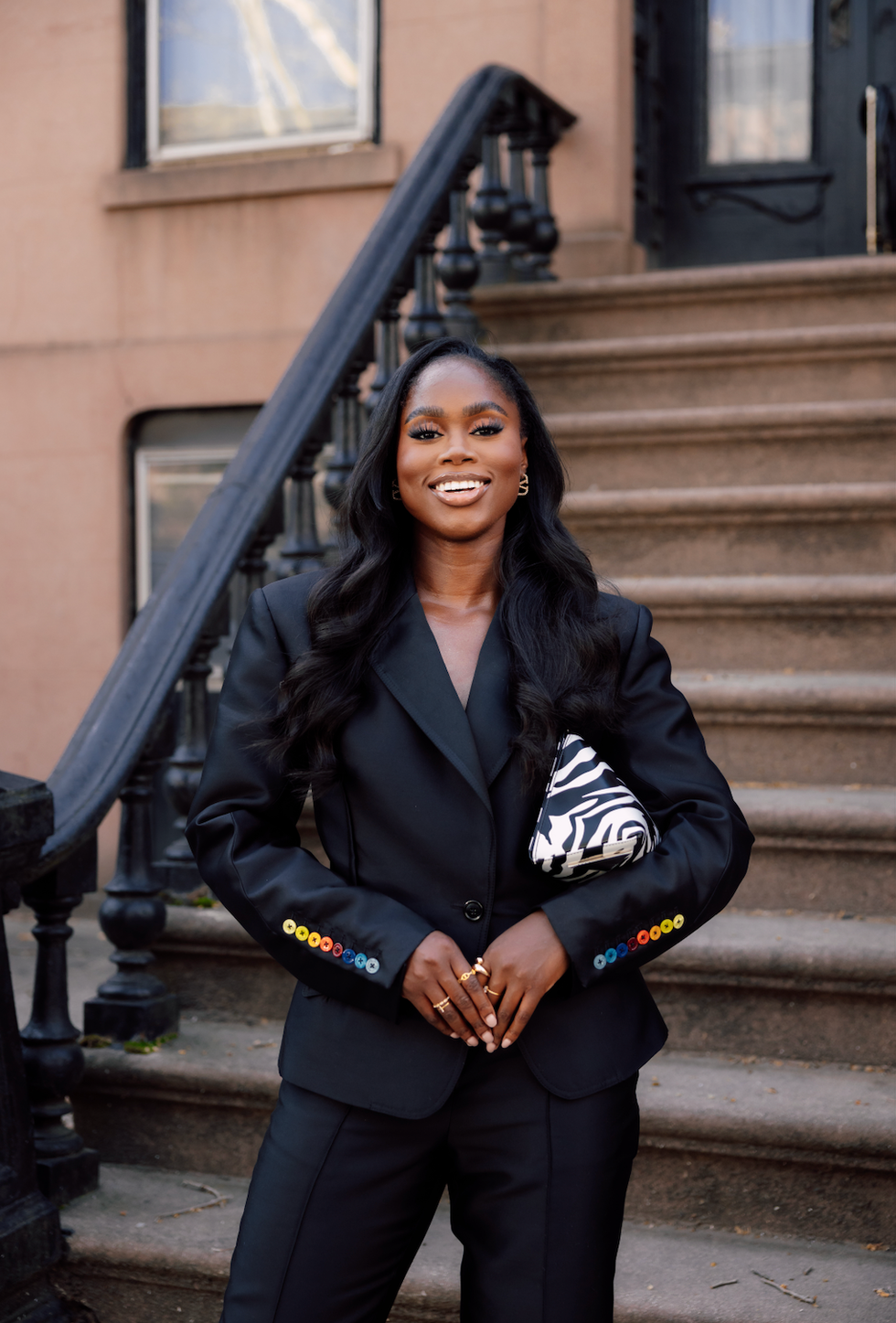
Content Creator Eni Popoola
Courtesy
Eni Popoola
Her Handle: @enipopoola
Her Title: Content Creator
Who's That It Girl: Eni Popoola is the visionary creative behind beautifully cinematic content that fuses fashion and feeling. We love her for proving that elegance and emotion can exist in every frame.
Her "Yes, And" Statement: "Yes, I'm not afraid to pivot and the best is still yet to come."
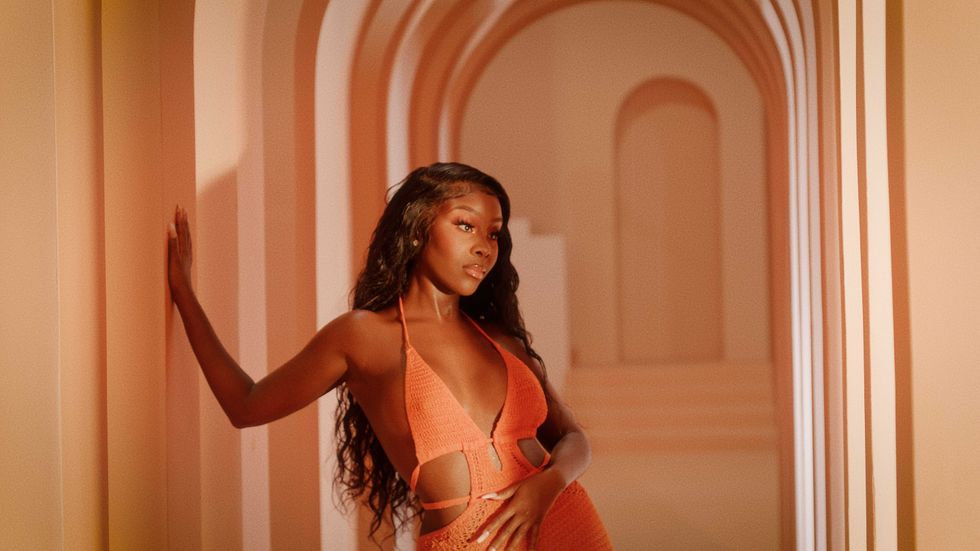
Content Creator Jessie Woo
Courtesy
Jessie Woo
Her Handle: @thejessiewoo
Her Title: Content Creator
Who's That It Girl: Jessie Woo is joy personified, a multi-talented entertainer and fearless truth-teller. We celebrate her for using humor, music, and faith to create content that heals through laughter.
Her "Yes, And" Statement: "Yes. I’m a force — and that’s why I create my own lanes instead of waiting for one to open."
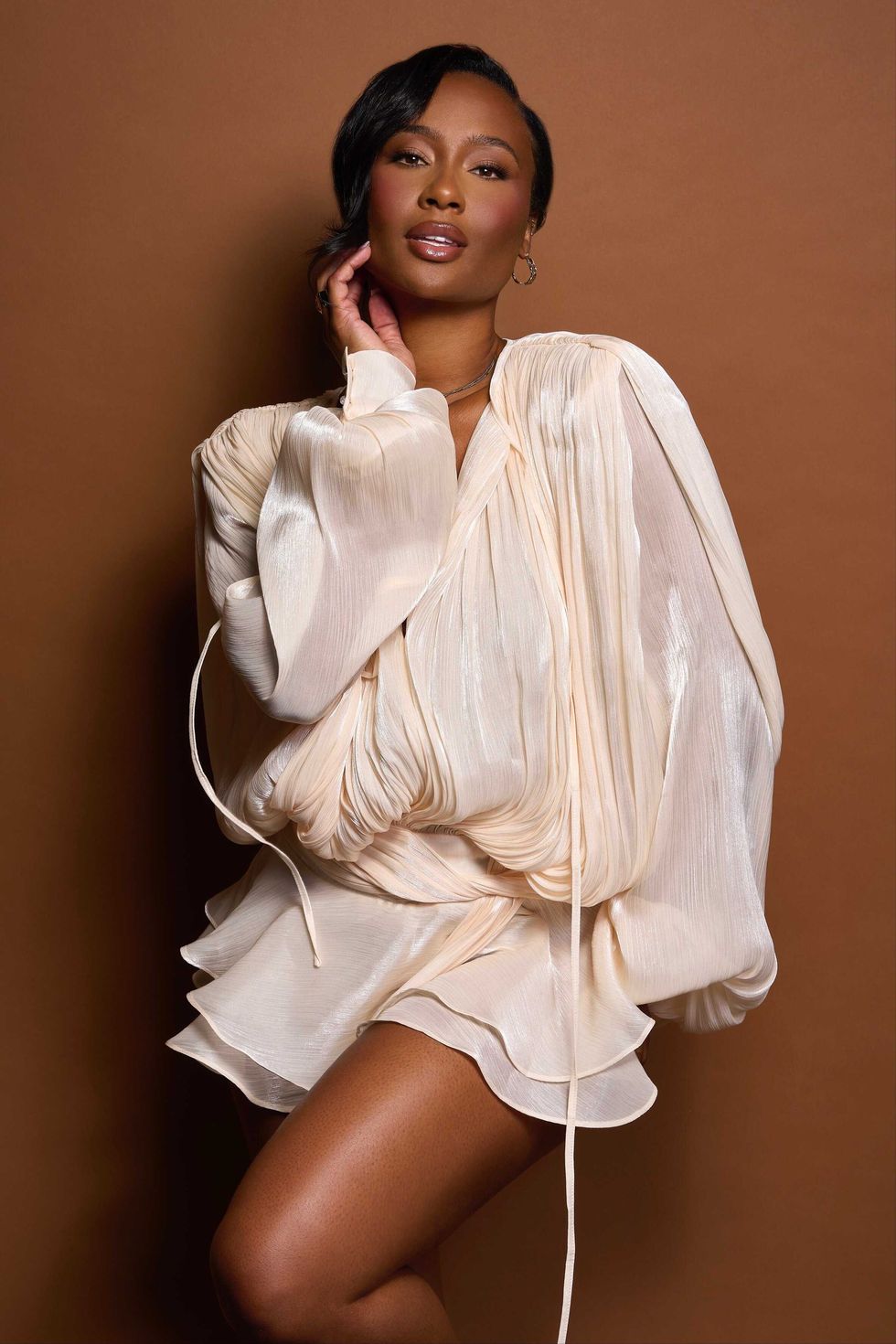
Media Personality, Founder and Host Kayla Nicole
Credit: Malcolm Roberson
Kayla Nicole
Her Handle: @kaylanicole
Her Title: Media Personality; Founder, Tribe Therepē; Host, Welcome to the Pre-Game
Who's That It Girl: Kayla Nicole merges style, storytelling, and self-awareness like no other. We celebrate her for being the friend in our feeds who reminds us to show up fully, flaws, fire, and all.
Her "Yes, And" Statement: "Yes, I’m curating conversations on my podcast The Pre-Game, and cultivating community with my wellness brand Tribe Therepē."
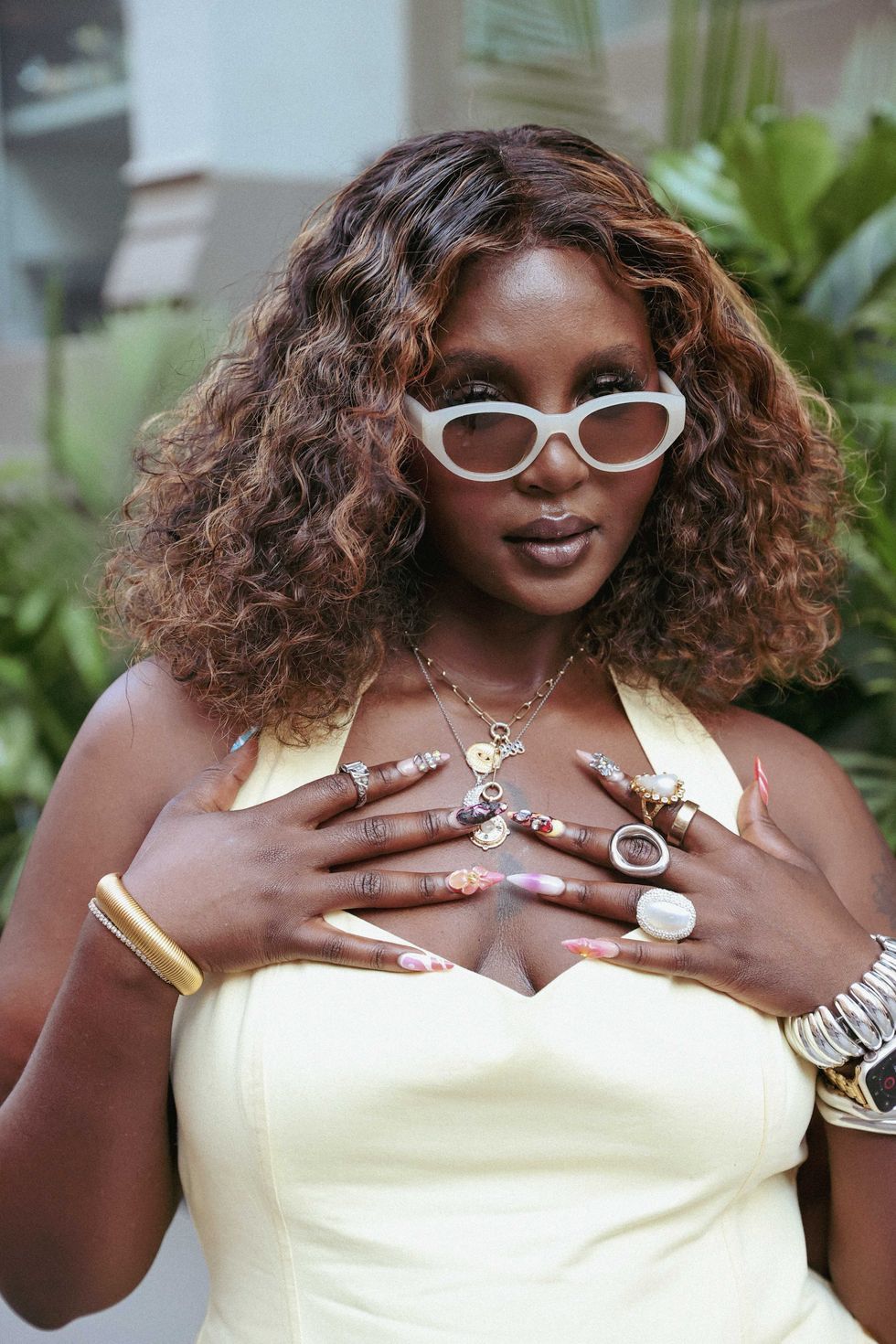
Creator and Entrepreneur Simi Muhumuza
Courtesy
Simi Muhumuza
Her Handle: @simimoonlight
Her Title: Creator and Entrepreneur
Who's That It Girl: Simi is a writer, and creative based in Brooklyn, NY. She focuses on style, lifestyle and wellness.
Her "Yes, And" Statement: "Yes, and I’m reaching even higher."
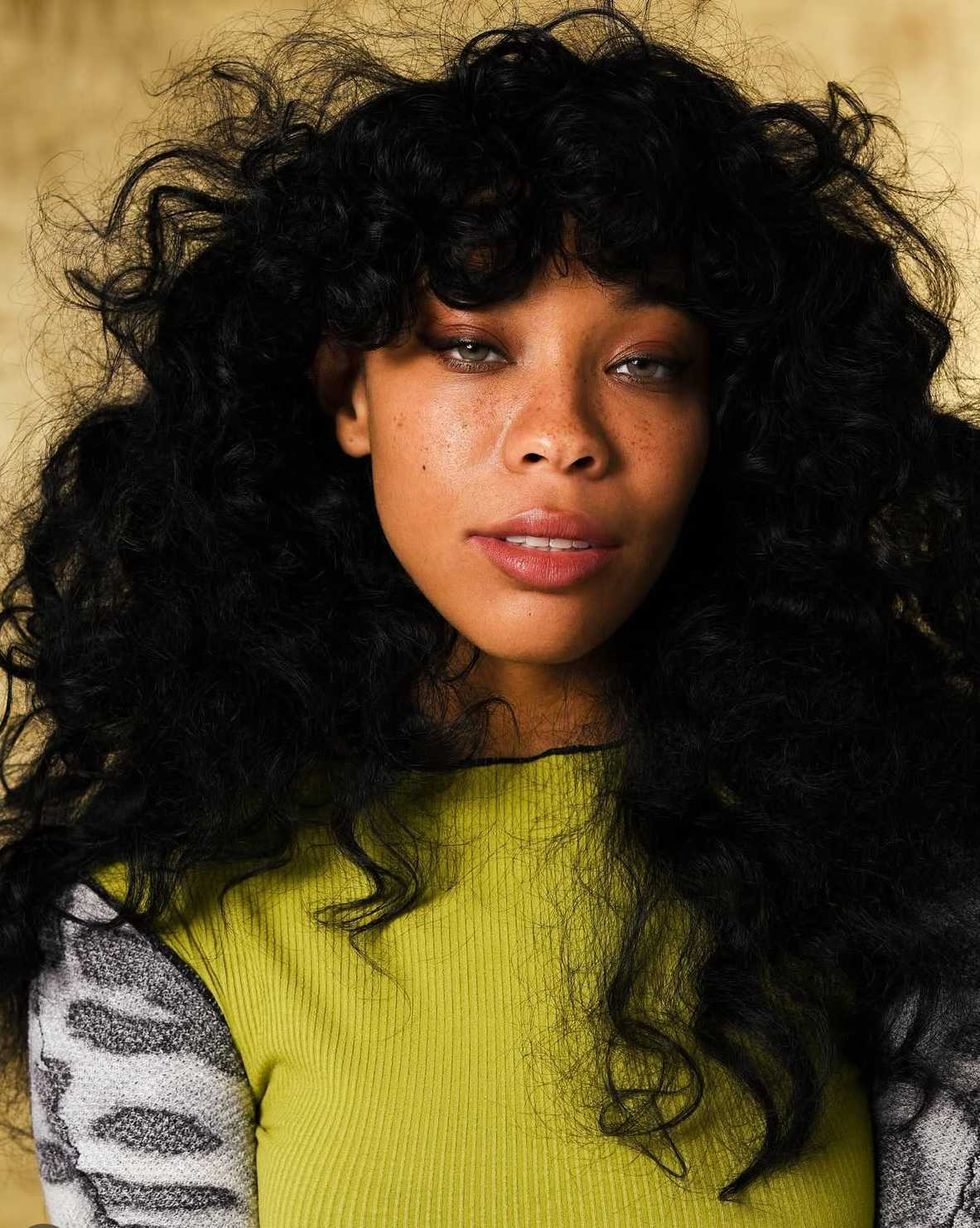
Creator Kiera Please
Courtesy
Kiera Please
Her Handle: @kieraplease
Her Title: Creator
Who's That It Girl: Kiera Please is a creator, voice actress, and artist whose creativity knows no bounds. With her unique mix of style, cosplay, and storytelling, she’s built a global fan base that celebrates self-expression.
Her "Yes, And" Statement: "Yes, I’m just weird girl and I’ll just keep getting weirder."
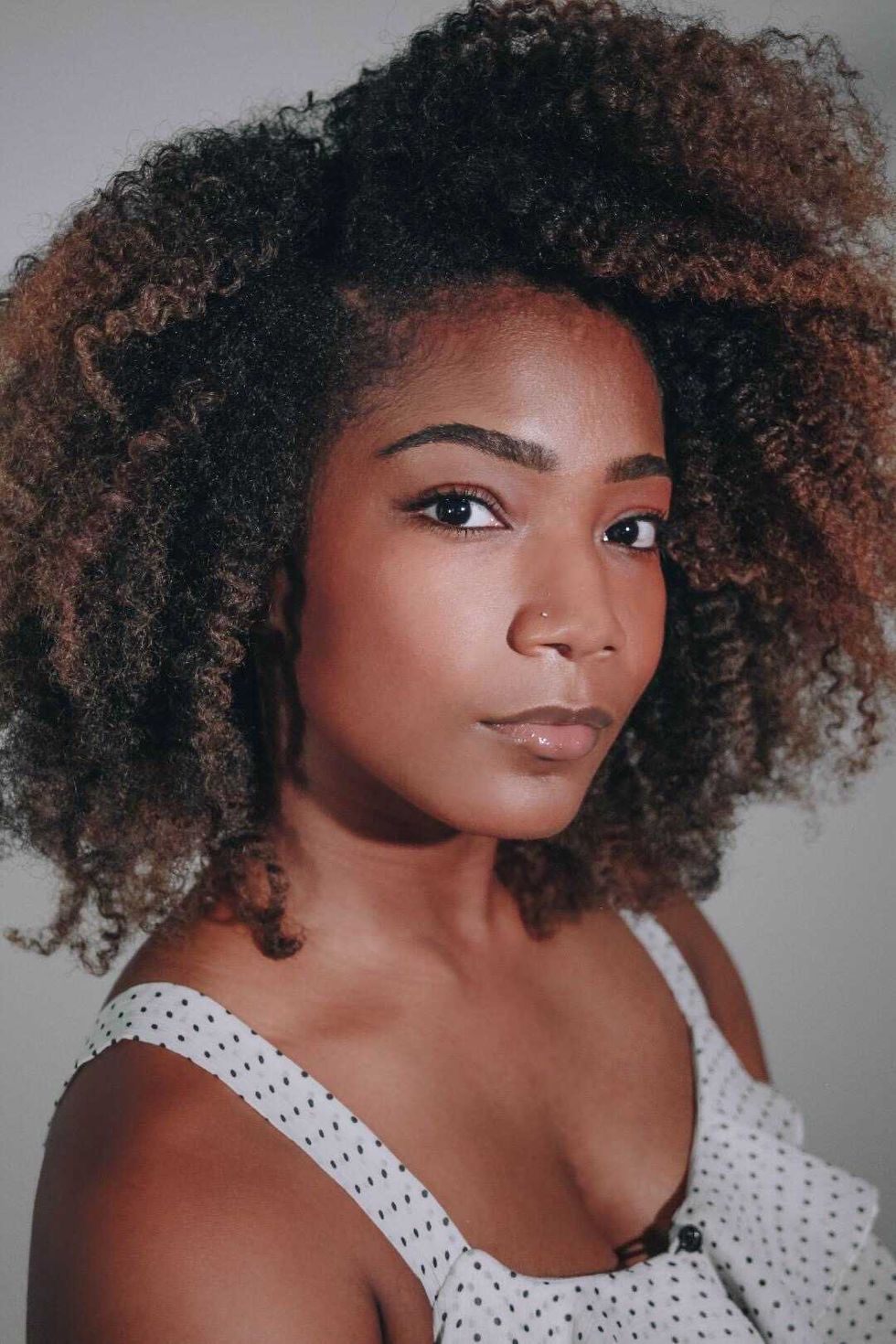
Content Creator Zaynah Bear
Courtesy
Zaynah Bear
Her Handle: @madame_zay
Her Title: Content Creator
Who's That It Girl: Zaynah Bear is a social media content creator known for her cartoon-style comedic storytelling that blends humor with everyday relatability. Her unique approach to creating content builds strong audience connections and keeps her community coming back for more laughs.
Her "Yes, And" Statement: "Yes, I'm boldly Black and beautifully quirky, owning every shade of my uniqueness."
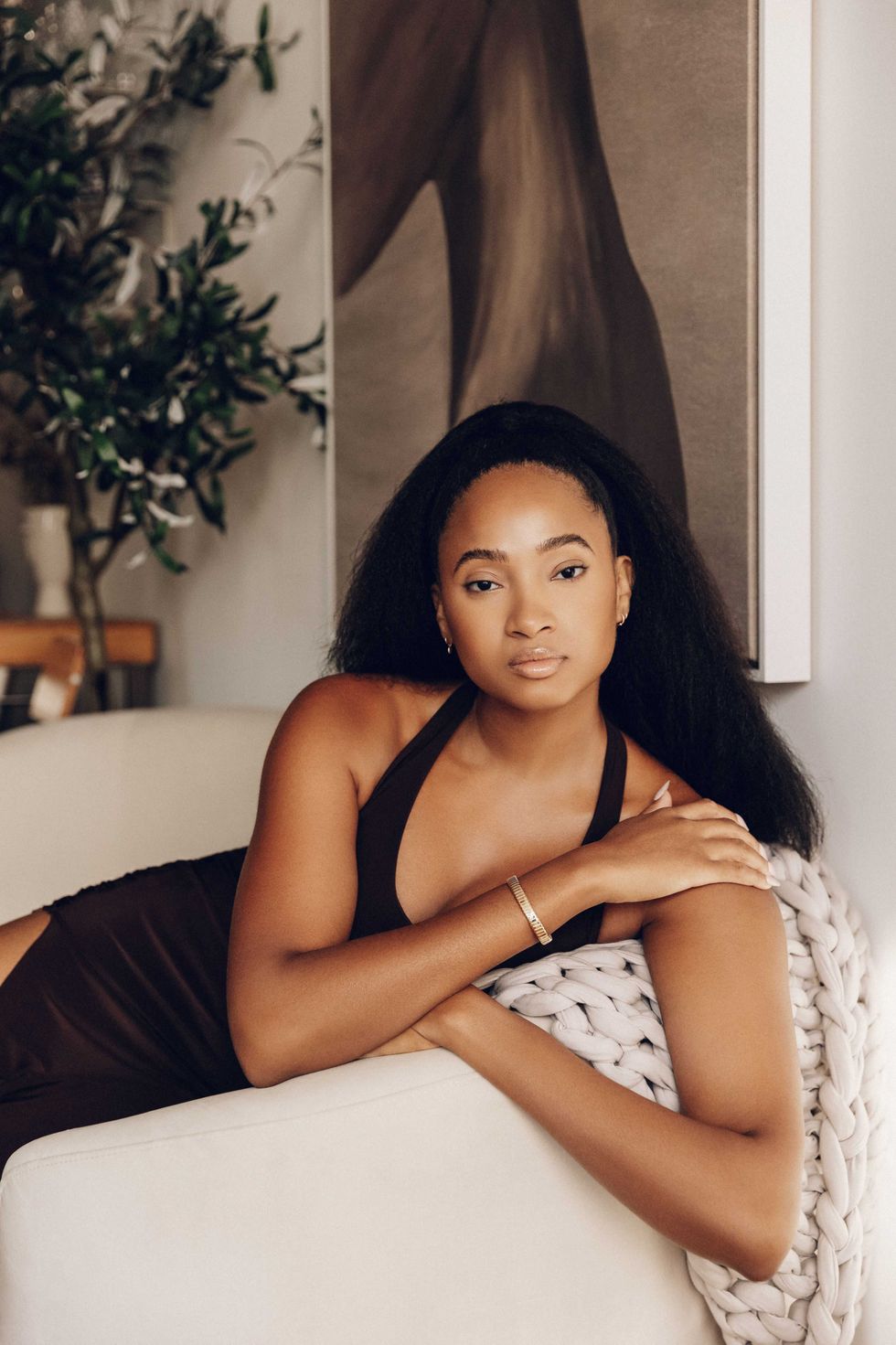
Social Media Consultant and Creative Candace Marie
Courtesy
Candace Marie
Her Handle: @marie_mag_
Her Title: Social Media Consultant and Creative
Who's That It Girl: Candace Marie is a luxury social-media strategist and founder of Black In Corporate. A former Parsons professor, she’s worked with fashion powerhouses like PRADA and Victoria Beckham, helping shape a more inclusive industry.
Her "Yes, And" Statement: "Yes, I’m grounded in strategy & storytelling—and I’m creating pathways for the future of influence."
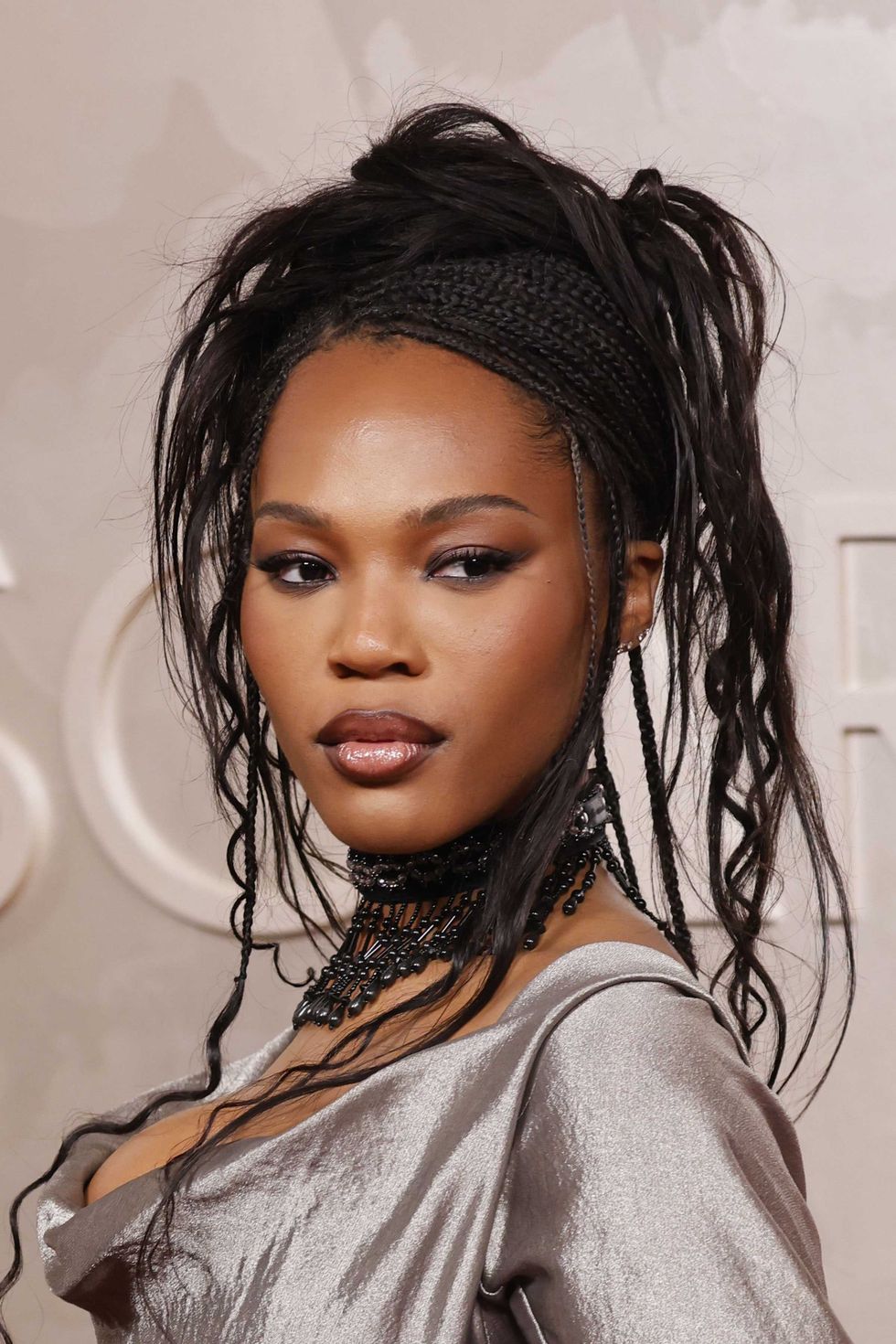
Model and Content Creator Quenlin Blackwell
Shutterstock
Quenlin Blackwell
Her Handle: @quenblackwell
Her Title: Model and Content Creator
Who's That It Girl: Quenlin Blackwell is digital dynamite, witty, unfiltered, and wildly creative. We celebrate her for turning chaos into comedy and self-expression into art that connects millions.
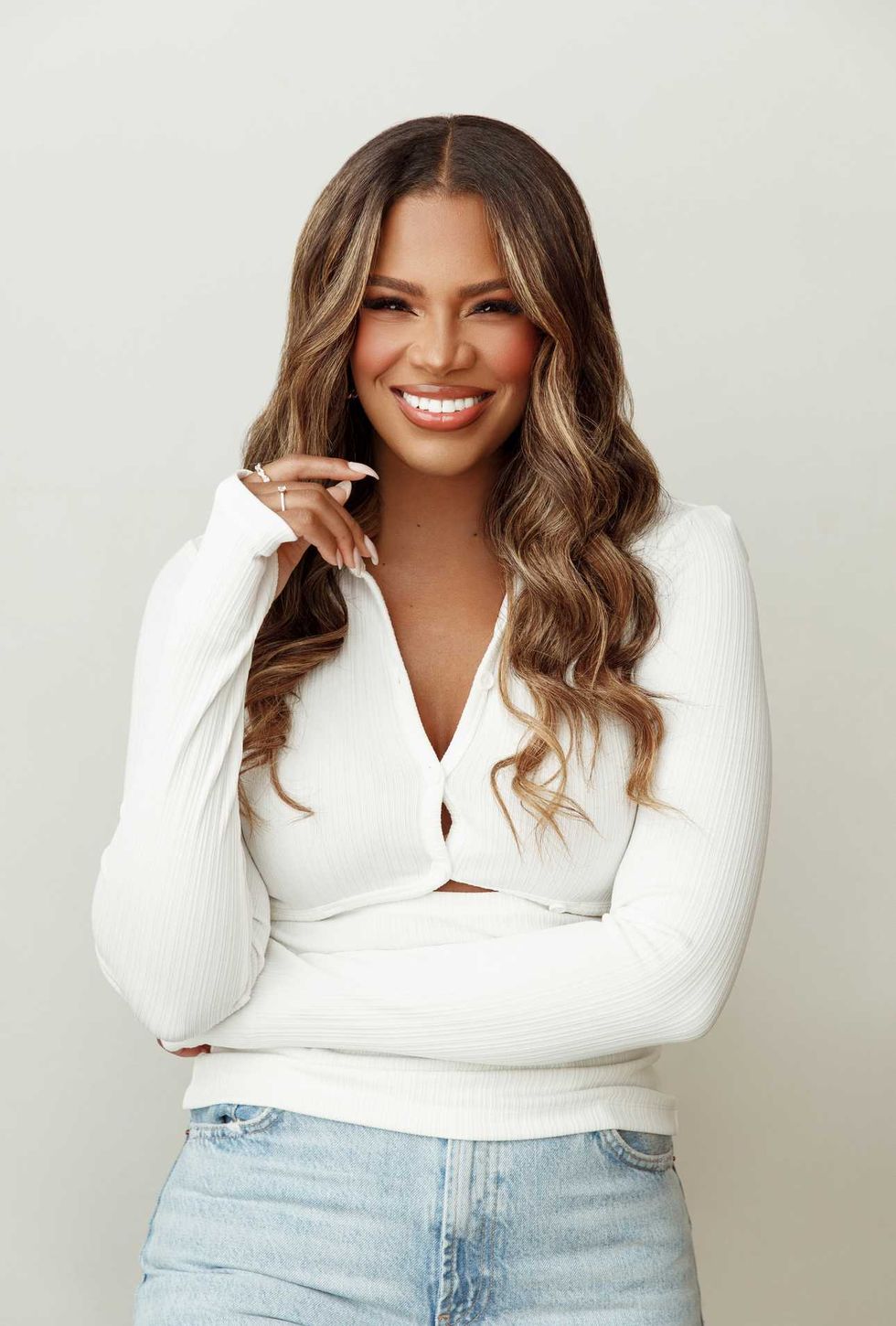
Content Creator and TV Host Kamie Crawford
Courtesy
Kamie Crawford
Her Handle: @kamiecrawford
Her Title: Content Creator and TV Host
Who's That It Girl: Kamie Crawford’s presence is as commanding as her compassion. We love her for being a media personality who advocates for confidence, self-worth, and love rooted in realness.
Her "Yes, And" Statement: "Yes, I'm that girl and I’ve had to heal parts of me to become her."
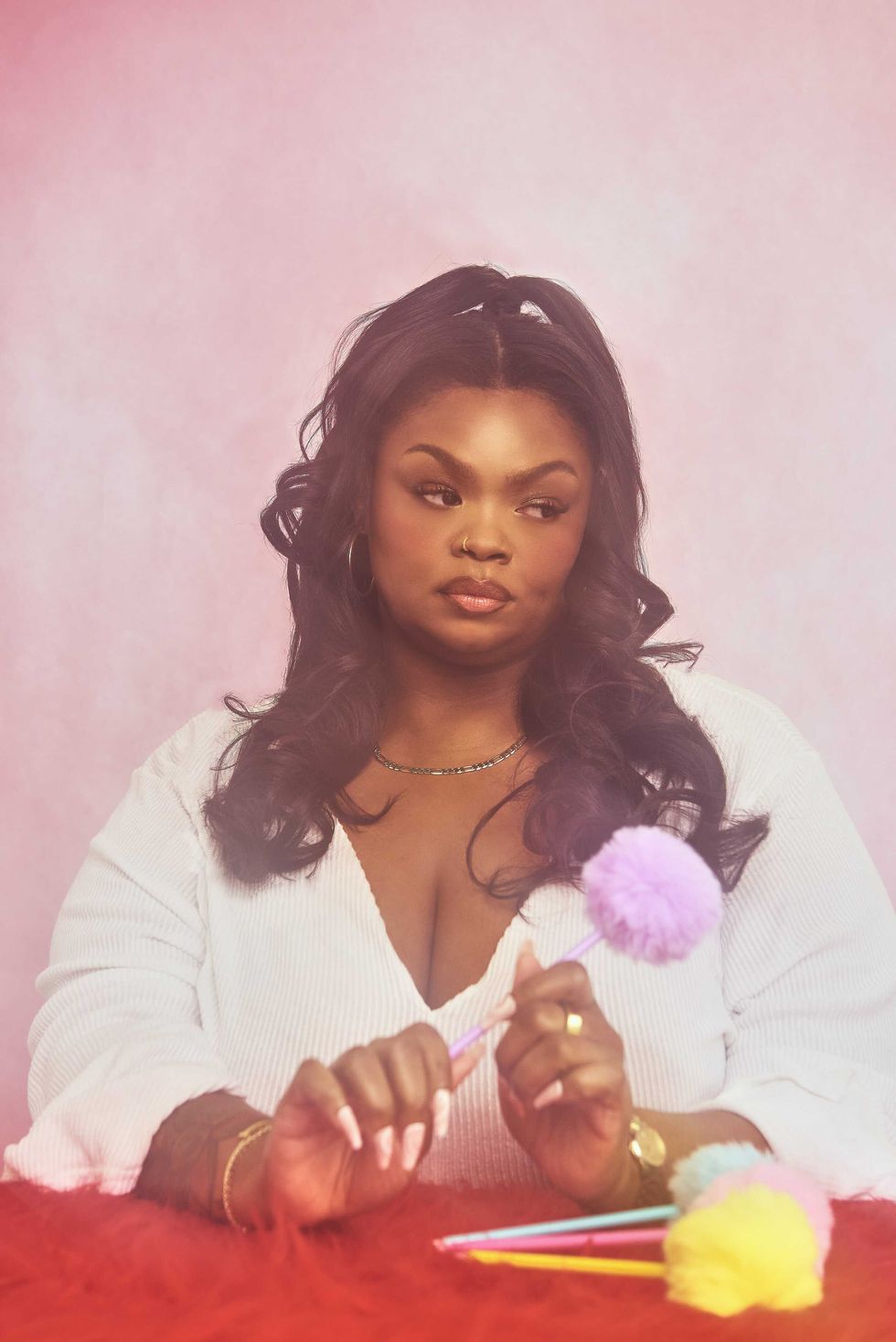
Author and Podcaster Sesali Bowen
Courtesy
Sesali Bowen
Her Handle: @badfatblackgirl
Her Title: Author and Podcaster
Who's That It Girl: Sesali was born and raised on the Southside of Chicago and coined trap feminism. During her time as an entertainment writer for Refinery29 she was one of the architects of Unbothered, their sub brand for Black women. As a brand strategist and copywriter she’s worked with Netflix, Onyx Collective, and more.
Her "Yes, And" Statement: "Yes, I said it and I’m standing on it."
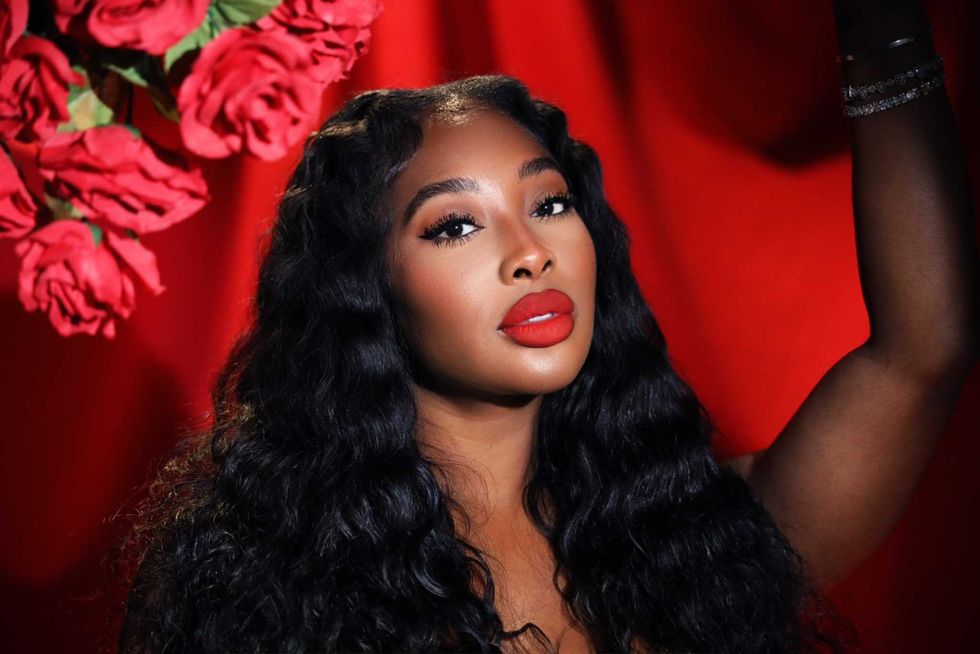
Co-Host of 'Pour Minds' Podcast Drea Nicole
Courtesy
Drea Nicole
Her Handle: @dreanicoleee
Her Title: Co-Host of Pour Minds Podcast
Who's That It Girl: As one-half of the hit podcast Pour Minds, Drea Nicole brings real talk with humor and heart. We celebrate her for creating spaces where women can laugh, learn, and live out loud.
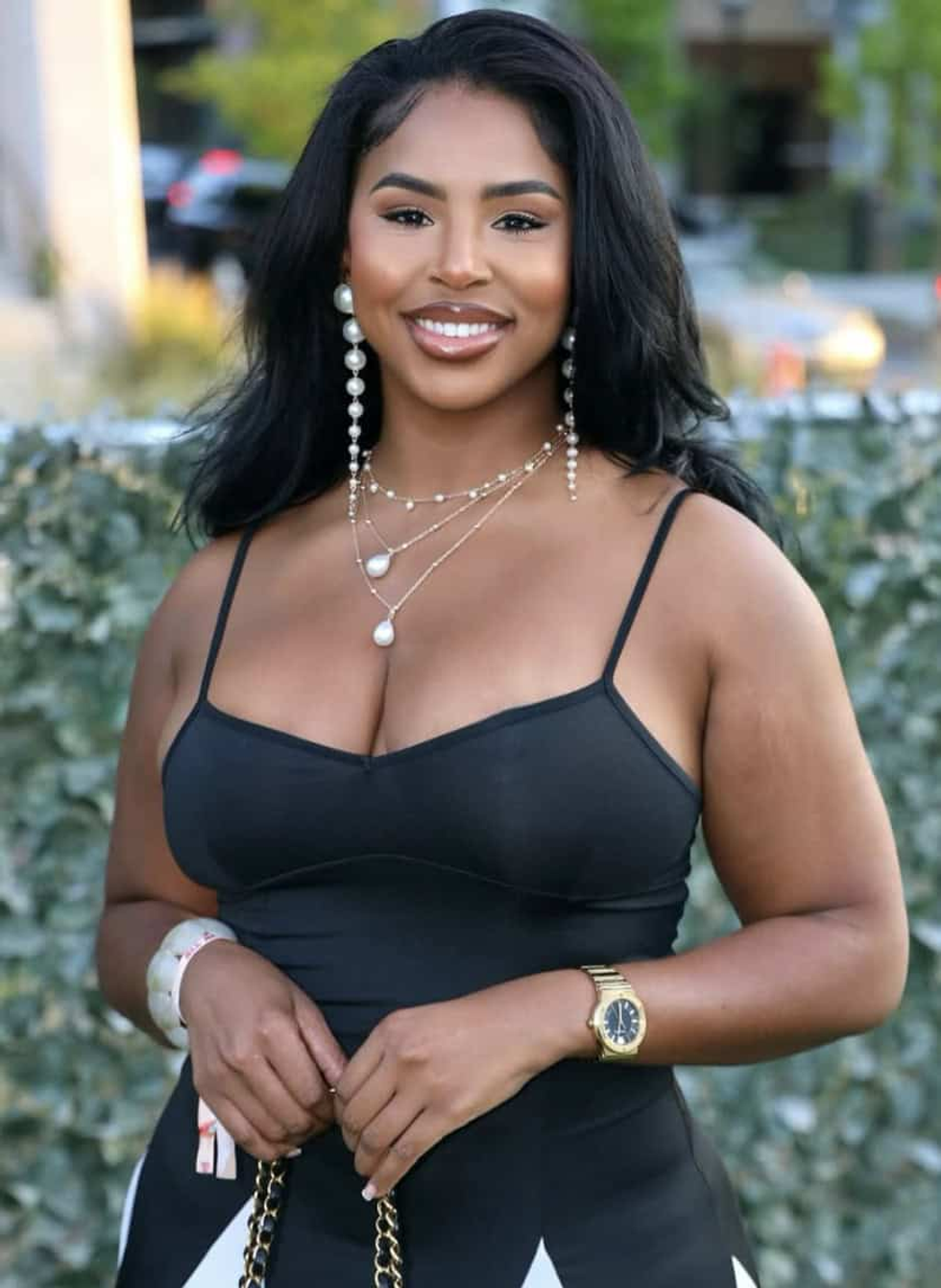
Co-Host of 'Pour Minds' Podcast Lex P
Courtesy
Lex P
Her Handle: @lex_p_
Her Title: Co-Host of Pour Minds Podcast
Who's That It Girl: Lex P’s voice is bold, funny, and deeply authentic. We love her for turning the mic into a movement through Pour Minds, proving that humor and healing can thrive side by side.
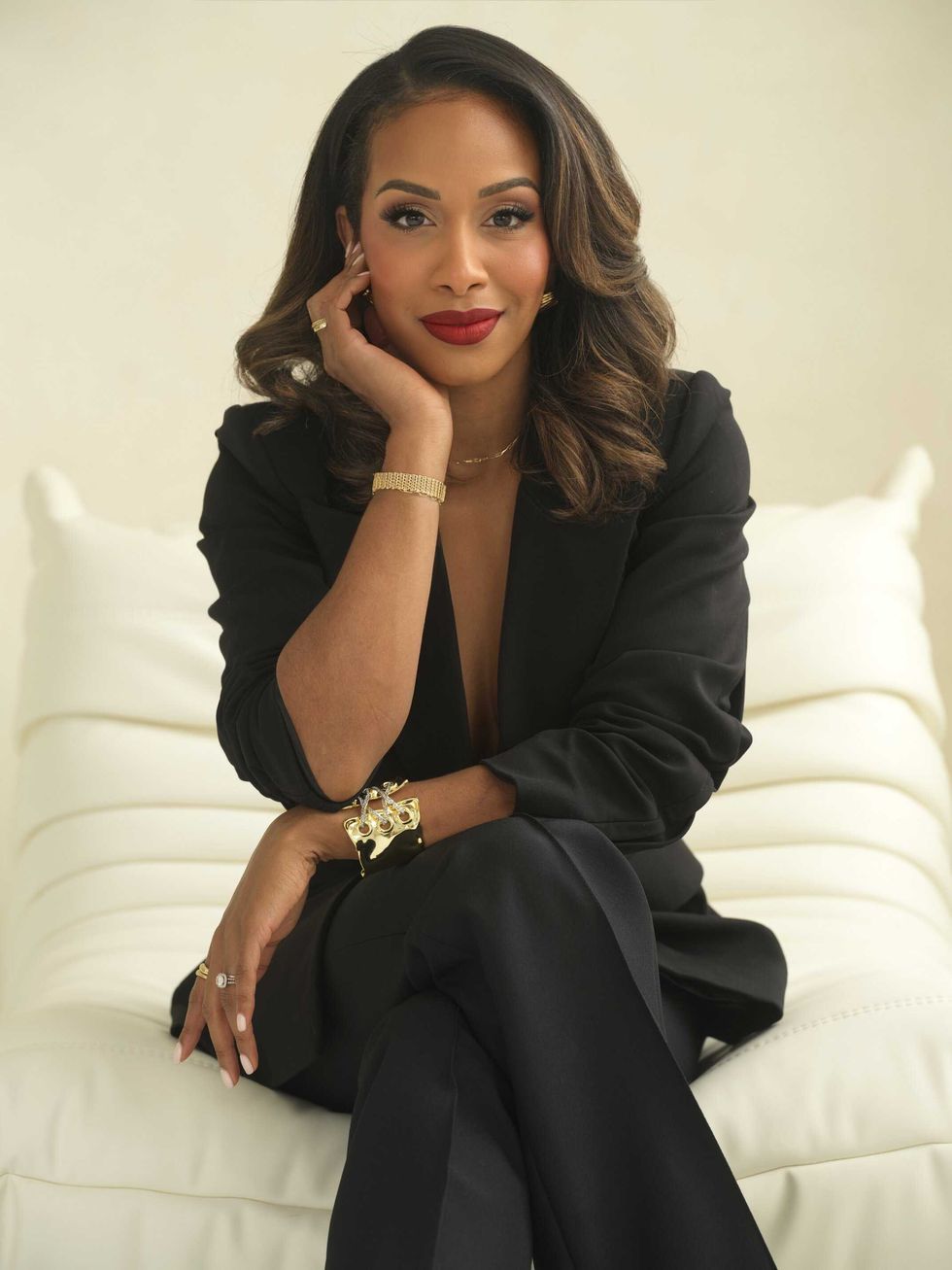
Content Creator Jeannette Reyes
Courtesy
Jeannette Reyes
Her Handle: @msnewslady
Her Title: Content Creator
Who's That It Girl: Jeannette Reyes, known online as @msnewslady, went from the newsroom to building her own media brand. She’s a creator, speaker, and author using her platform to help women show up confidently on and off camera.
Her "Yes, And" Statement: "Yes, I take up space and I make room for others."

Founder of Mary Louise Cosmetics Akilah Releford
Courtesy
Akilah Releford
Her Handle: @akilahreleford
Her Title: Founder of Mary Louise Cosmetics
Who's That It Girl: Founder of Mary Louise Cosmetics, Akilah merges skincare and sisterhood with intention. We celebrate her for turning DIY passion into a thriving brand rooted in empowerment and care.
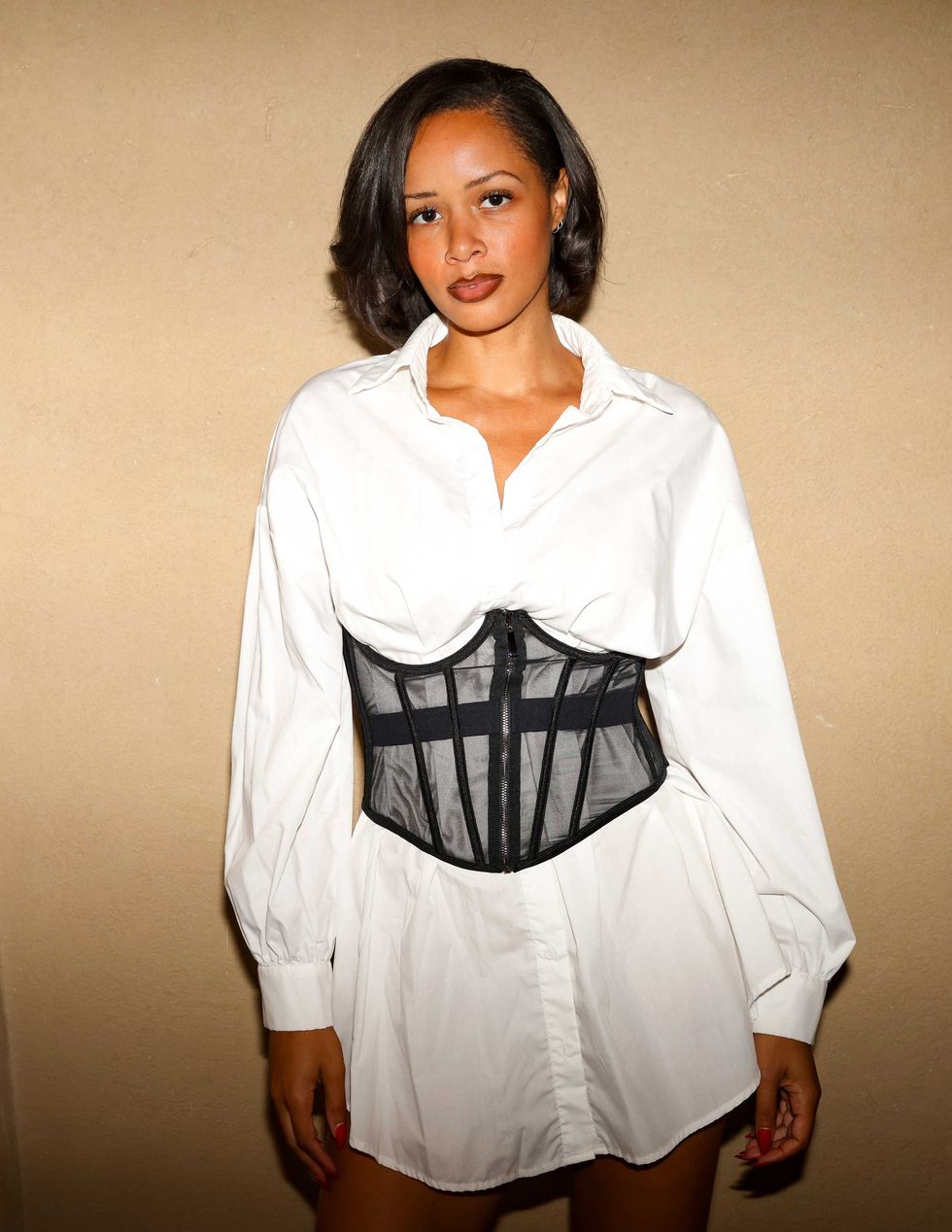
Award-Winning Journalist and Beauty Expert Kayla Greaves
Courtesy
Kayla Greaves
Her Handle: @kaylaagreaves
Her Title: Award-Winning Journalist and Beauty Expert
Who's That It Girl: Kayla Greaves is a journalist and on-camera expert who’s spent more than a decade telling stories that matter. From interviewing icons like Naomi Campbell to consulting for major brands, she continues to redefine beauty and culture.
Her "Yes, And" Statement: "Yes, I'm bold and I make no qualms about it."
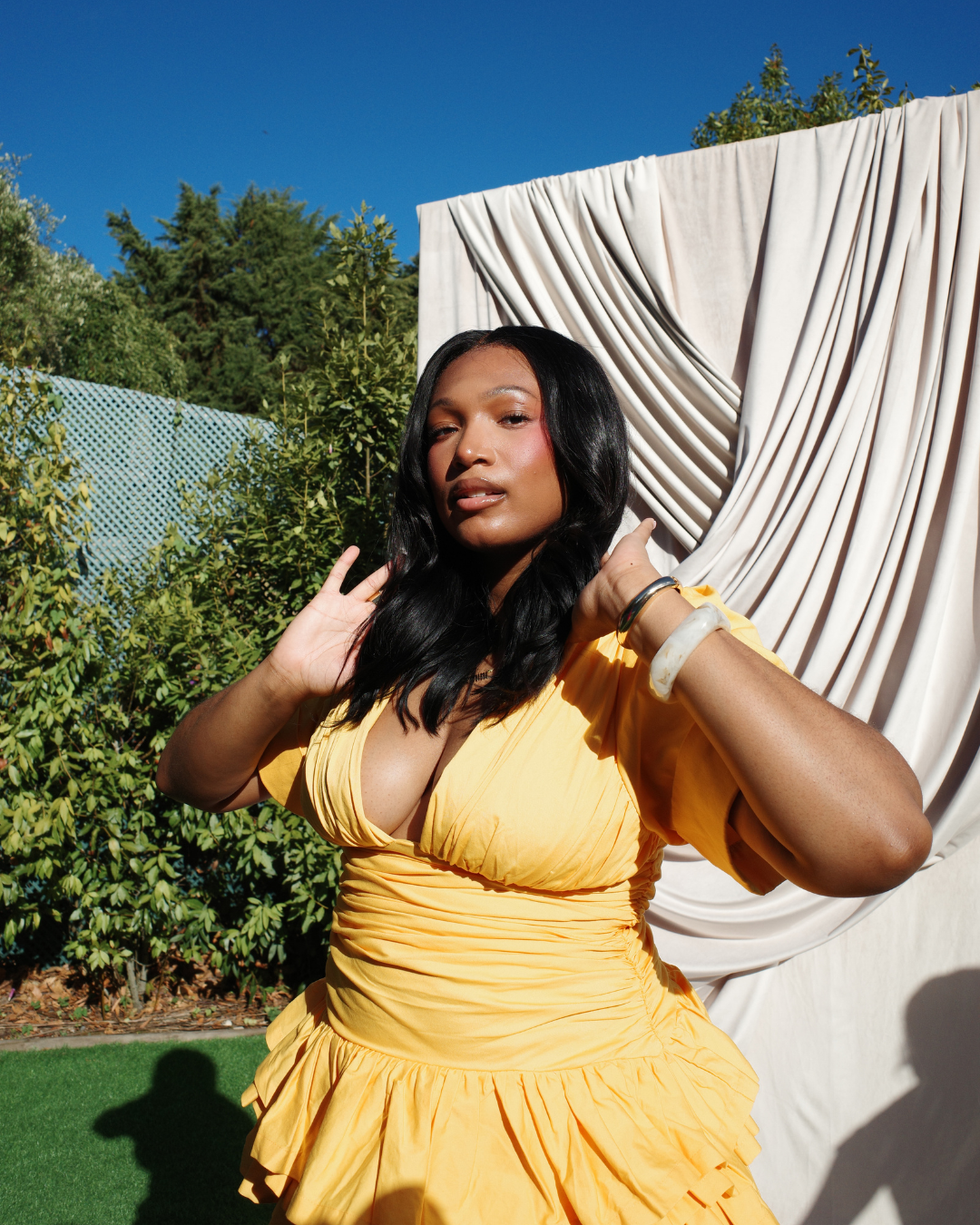
Digital Creator Lauren W.
Courtesy
Lauren W.
Her Handle: @laurenthelolife
Her Title: Digital Creator, Lifestyle and Beauty
Who's That It Girl: Lauren W. brings a breath of honesty to lifestyle content. We celebrate her for creating digital spaces that feel like safe havens for self-discovery, growth, and grace.
Her "Yes, And" Statement: "Yes, and I'll do it solo!"
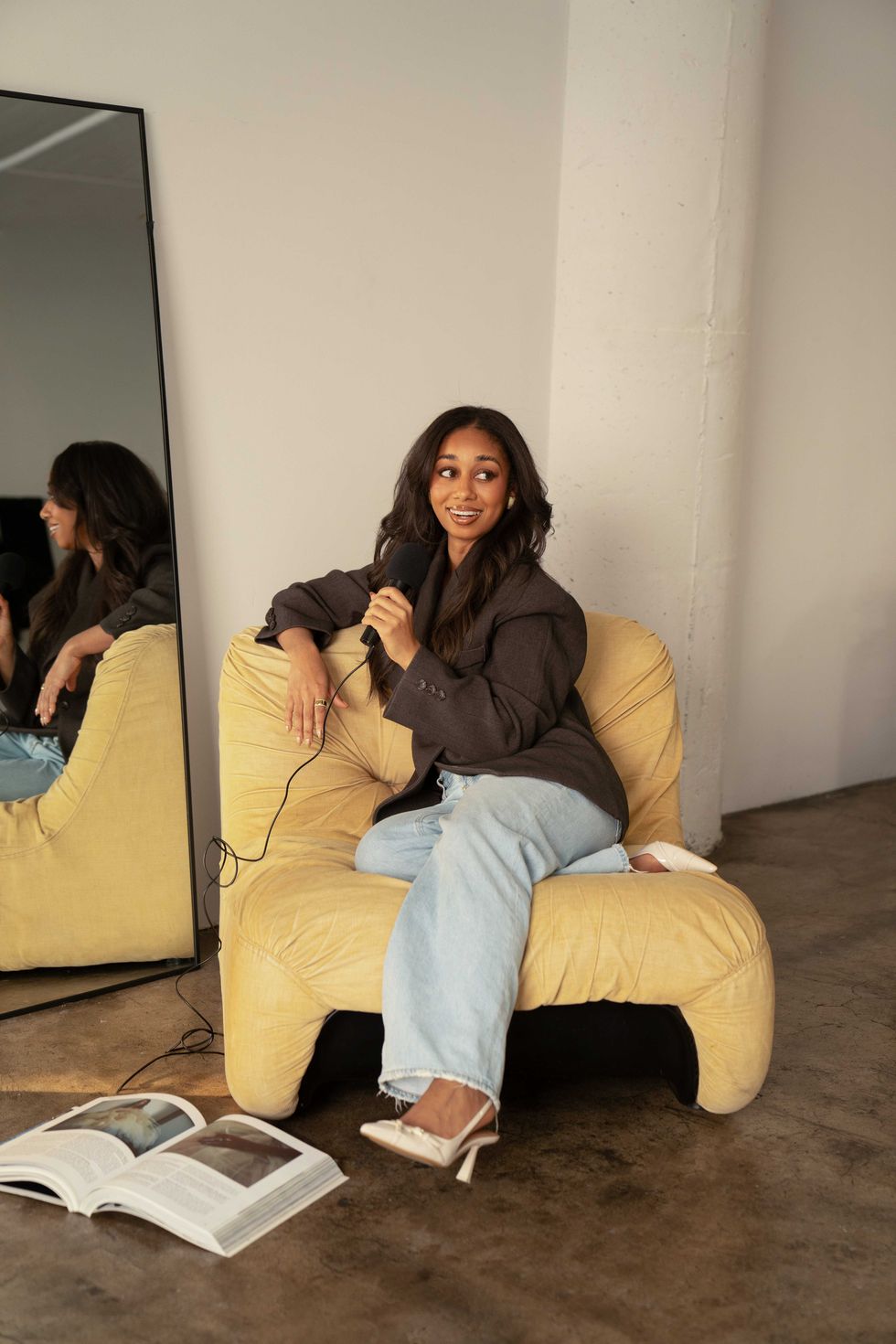
Host of 'She's So Lucky' Podcast Les Alfred
Les Alfred
Her Handle: @lesalfred
Her Title: Host of She's So Lucky podcast
Who's That It Girl: Les Alfred is a media entrepreneur and cultural storyteller shaping the future of women-centered narratives. As the creator and host of She’s So Lucky (formerly Balanced Black Girl), an NAACP Image Award-nominated podcast, she has built a thriving media ecosystem that explores wellness and self-discovery through the lens of trail-blazing women.
Her "Yes, And" Statement: "Yes, I'm strong and I lead with softness."
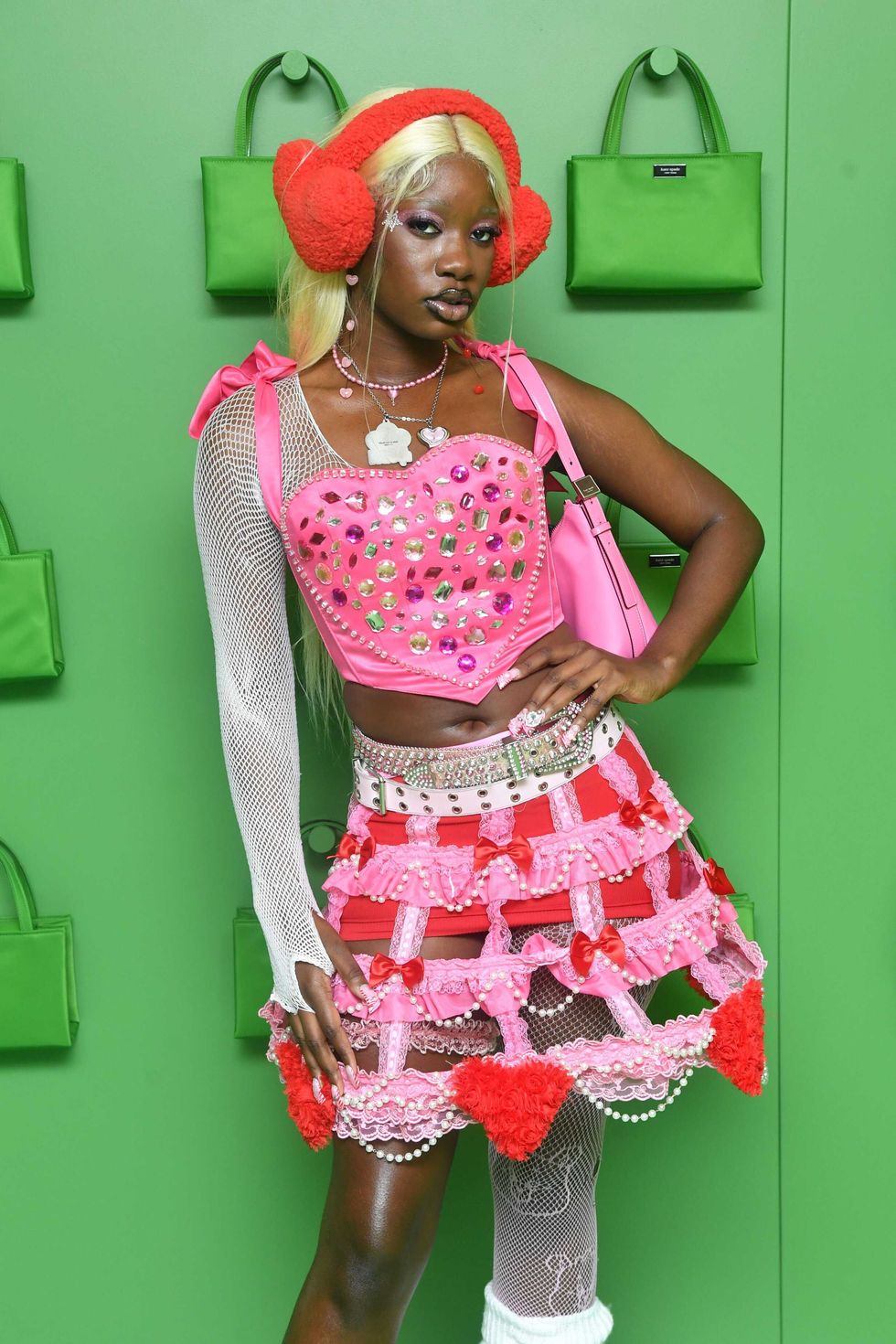
Influencer, Rapper and Actress Aliyah's Interlude
Shutterstock
Aliyah's Interlude
Her Handle: @aliyahsinterlude
Her Title: Influencer, Rapper and Actress
Who's That It Girl: Aliyah's Interlude brings softness and soul to the internet’s boldest spaces. We honor her for creating artful, introspective content that reminds us to slow down, reflect, and dream louder.
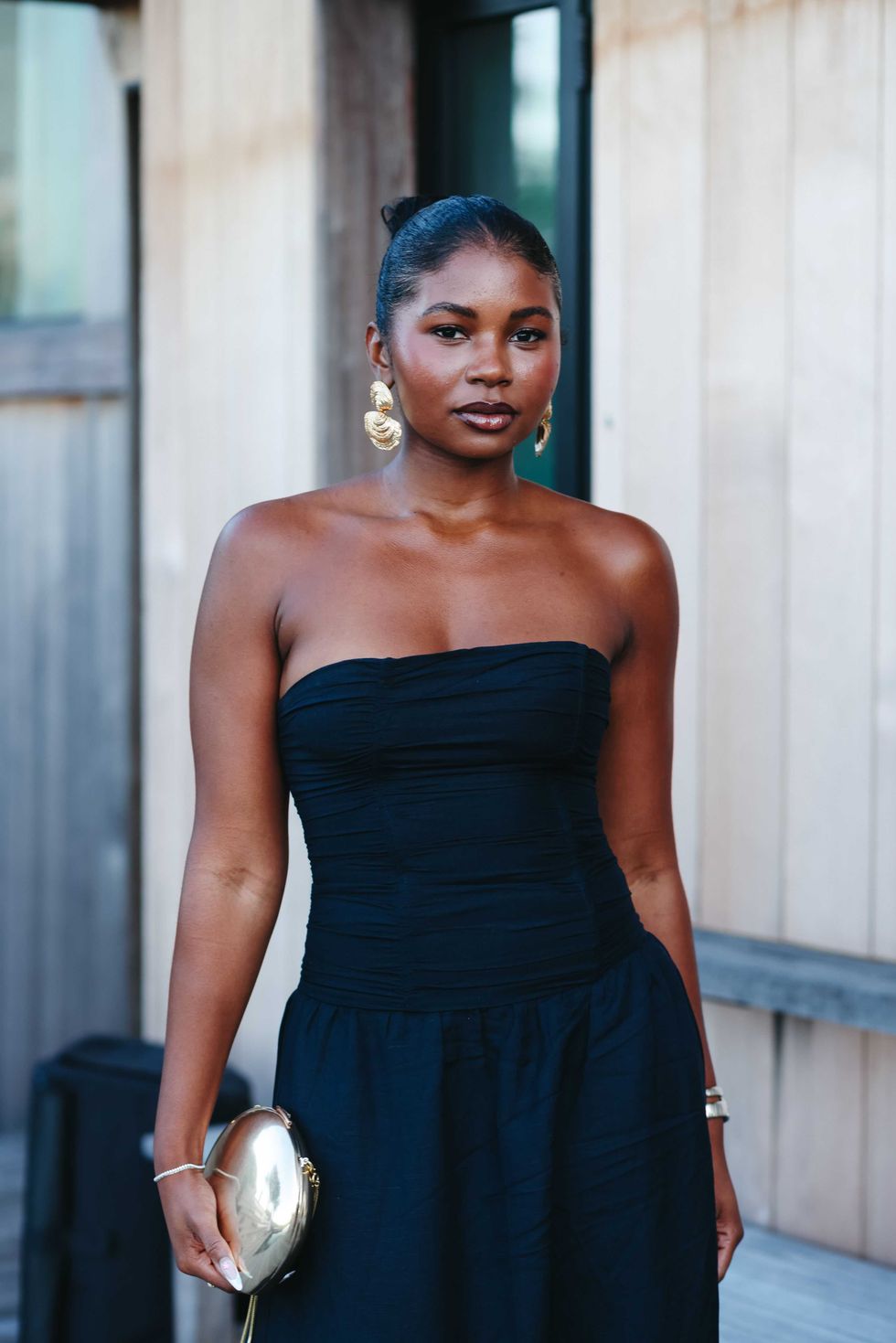
Beauty and Fashion Digital Creator Clarke Peoples
Shutterstock
Clarke Peoples
Her Handle: @clarkepeoples
Her Title: Beauty and Fashion Digital Creator
Who's That It Girl: Clarke Peoples creates content that feels like a warm conversation. We love her for her authenticity and for showing that influence grounded in truth never goes out of style.
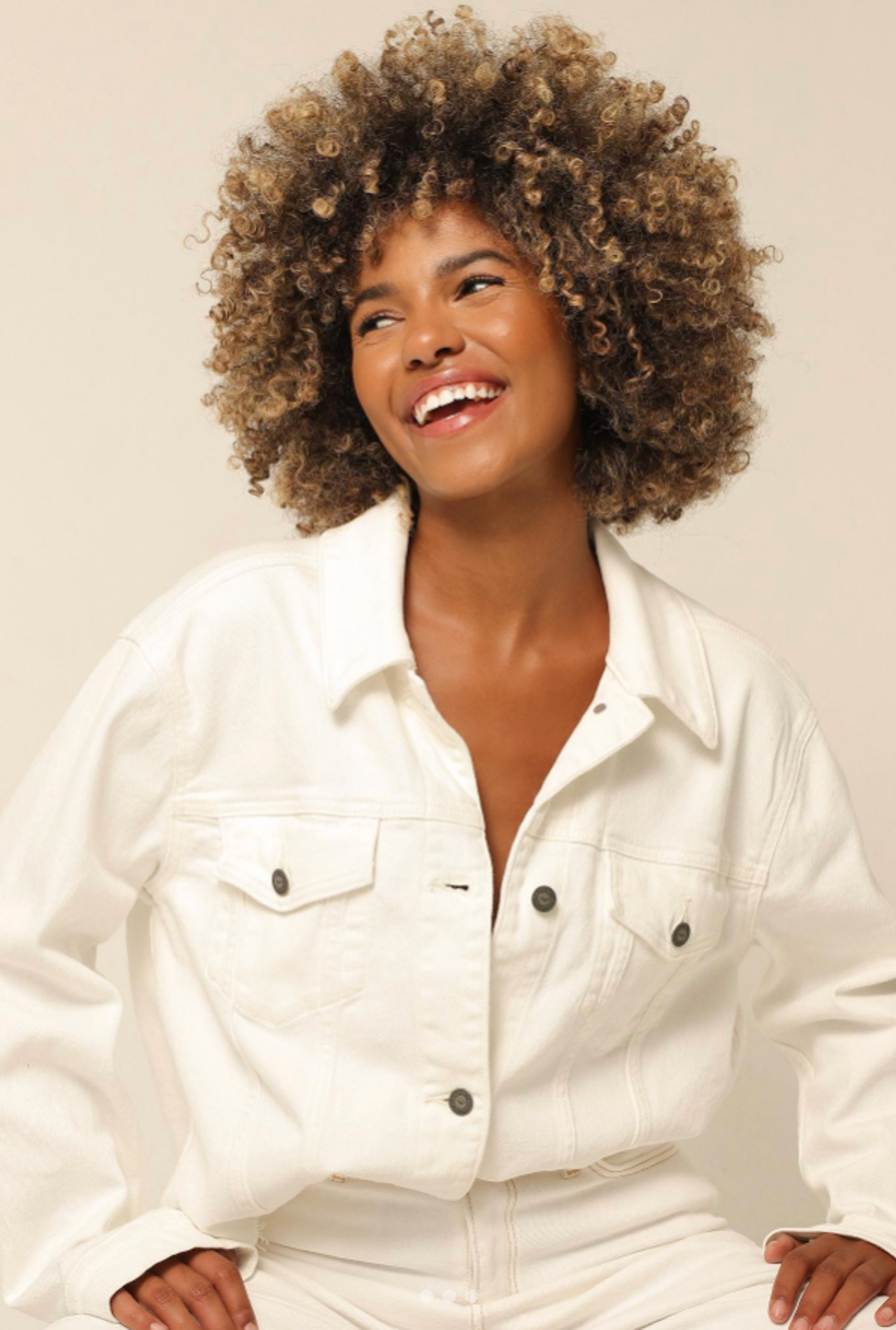
Model and Content Creator Kamrin White
Courtesy
Kamrin White
Her Handle: @kamrinwhite
Her Title: Model and Content Creator
Who's That It Girl: We celebrate Kamrin White for transforming her lifestyle lens into something real and radiant. A proud Afro-Latina creator and entrepreneur, she weaves wellness, fashion, and authenticity into her content, inviting her audience to live boldly and vulnerably in their own stories.

Lifestyle and Beauty Creator Jayla Brenae
Courtesy
Jayla Brenae
Her Handle: @jaylabrenae
Her Title: Lifestyle and Beauty Creator
Who's That It Girl: Jayla Brenae inspires through her transparency and storytelling. We honor her for blending wellness, confidence, and community into content that uplifts and empowers women of all walks.
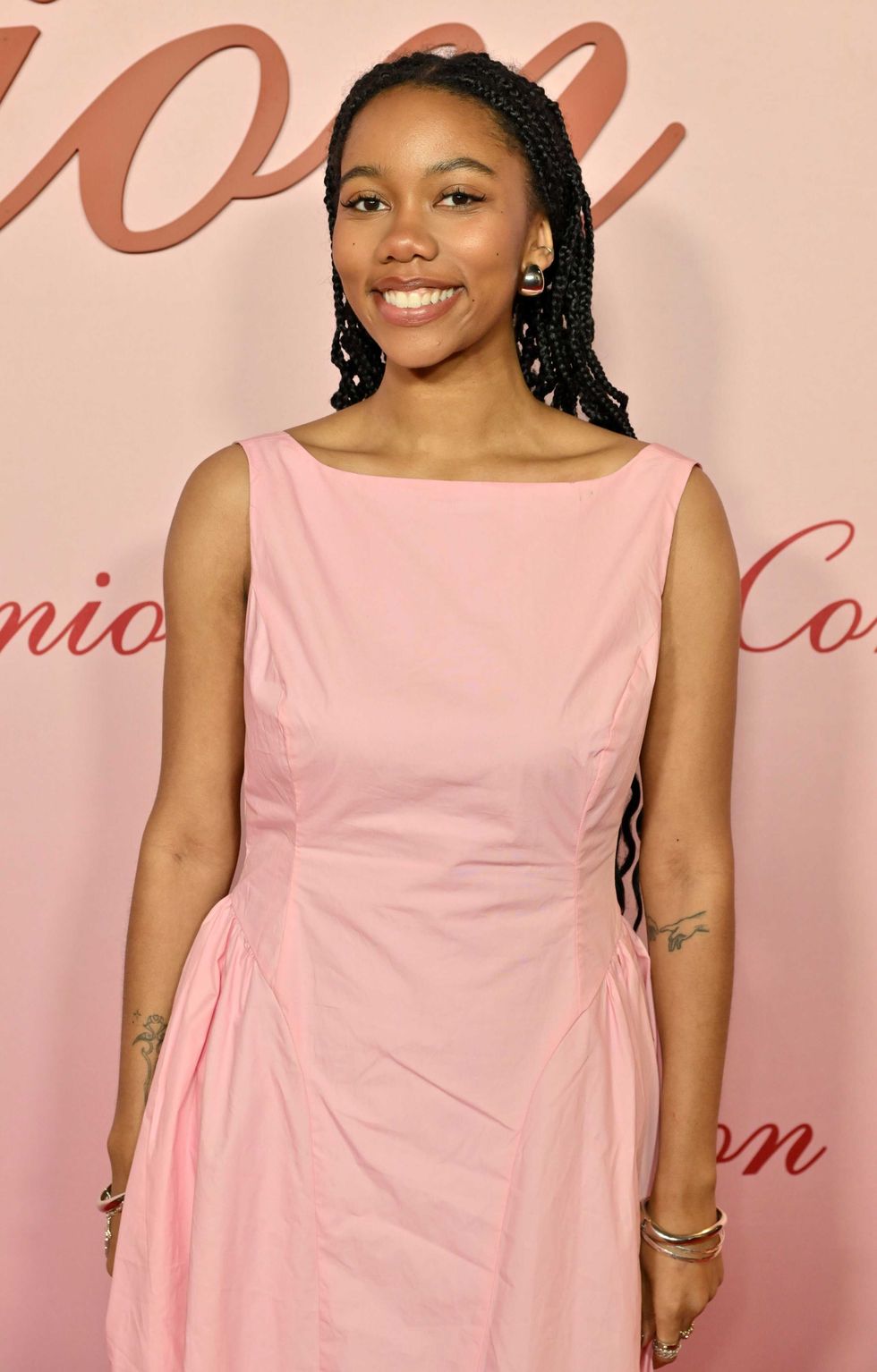
Journalist and Content Creator Casey Winbush
Shutterstock
Casey Winbush
Her Handle: @caseywinbush
Her Title: Journalist and Content Creator
Who's That It Girl: With humor and heart, Casey Winbush is the voice of digital relatability. We celebrate her for blending vulnerability with wit, turning everyday stories into shared laughter and healing.
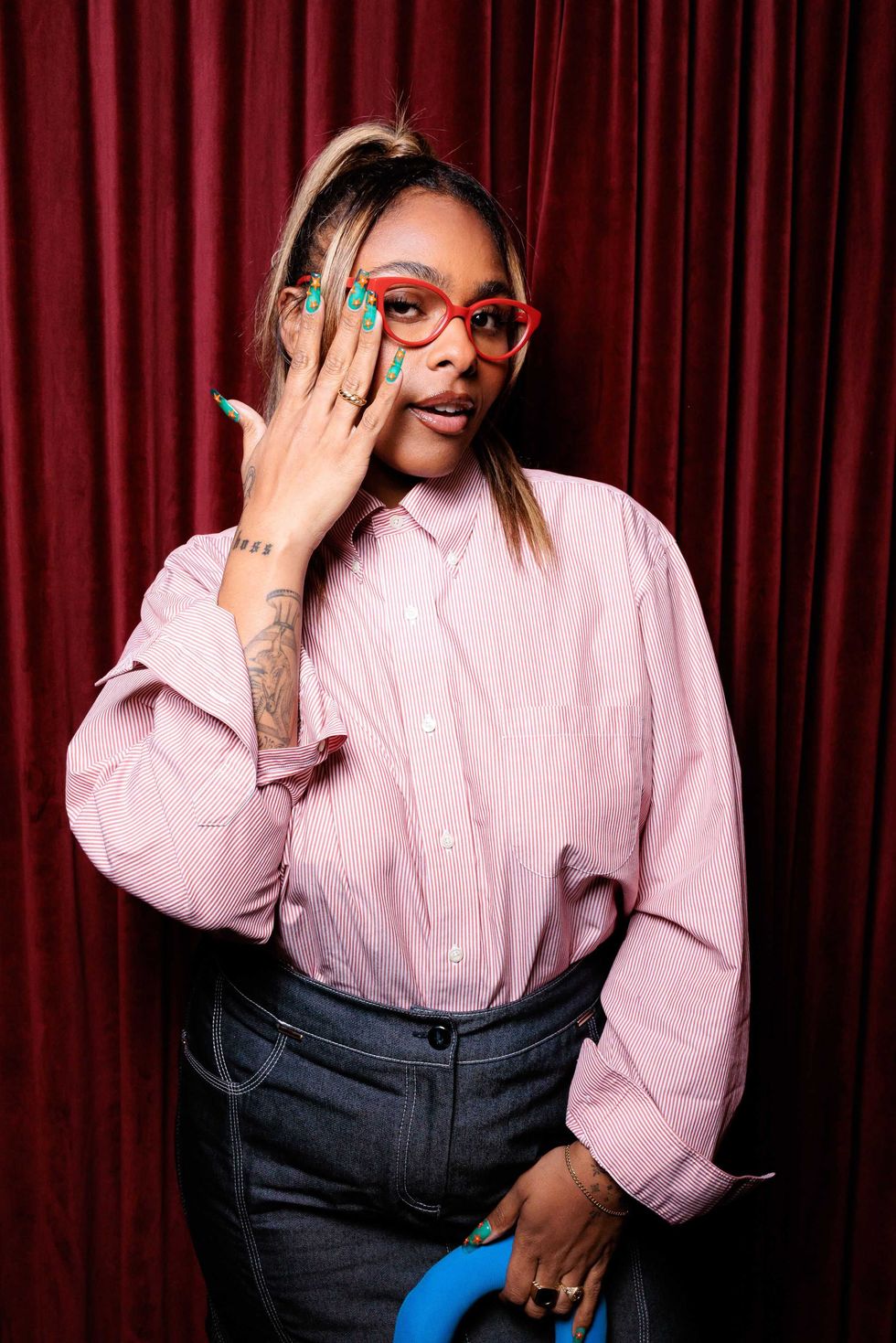
Model and Owner of PLEASEPEARLME Kendra Austin
Shutterstock
Kendra Austin
Her Handle: @kendramorous
Her Title: Model and Owner of PLEASEPEARLME
Who's That It Girl: Kendra Austin is poetry in motion, writer, model, and muse. We honor her for redefining softness as strength and for giving women permission to rest, feel, and reclaim joy.
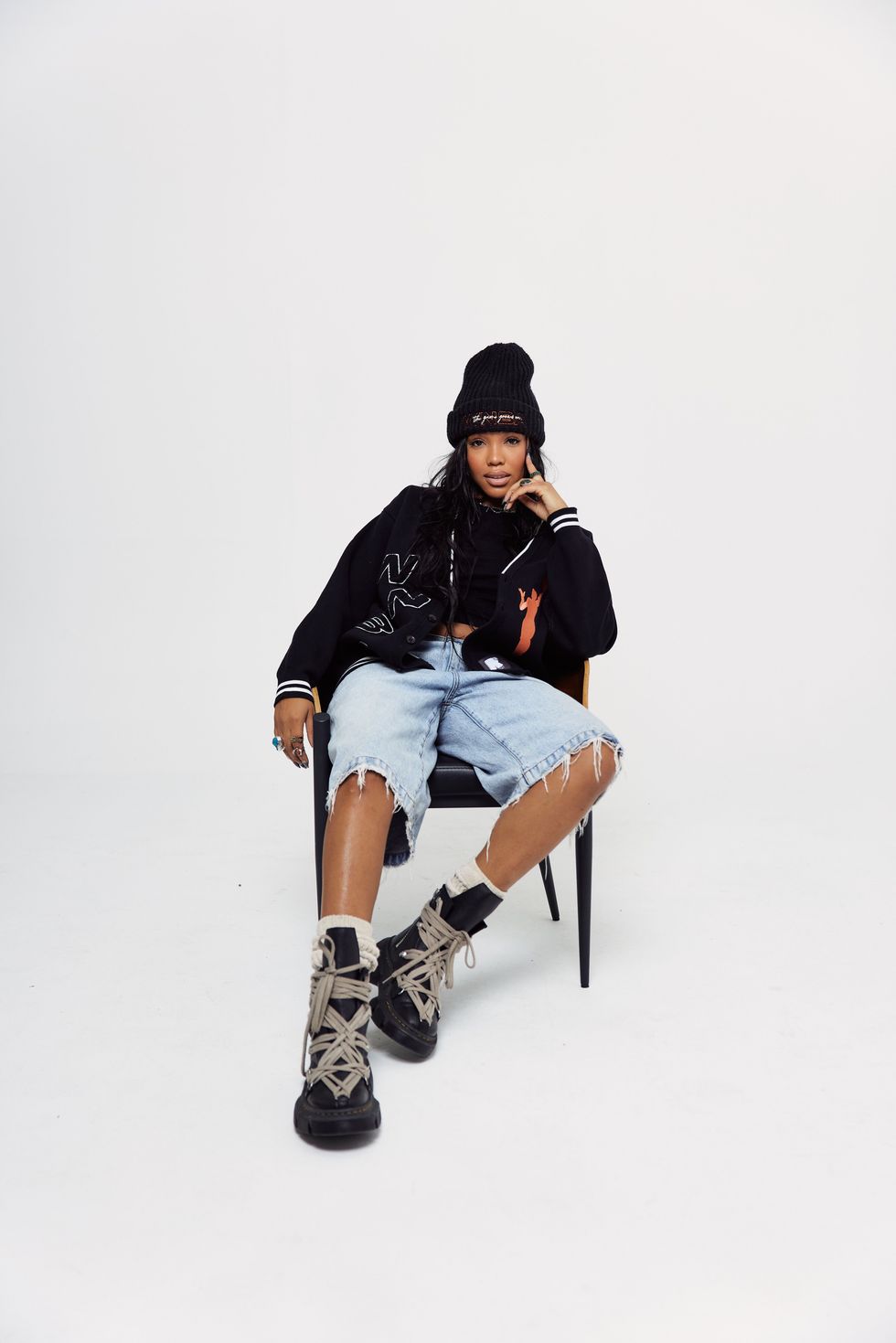
Multidisciplinary Visual Artist and Creative Entrepreneur Shema Love
Courtesy
Shema Love
Her Handle: @shemalove
Her Title: Multidisciplinary Visual Artist and Creative Entrepreneur
Who's That It Girl: Shema Love is a Brooklyn-based artist and designer turning art into healing. Her bold visuals and apparel celebrate Black joy, creativity, and self-expression, featured by Vogue, Nike, Netflix, and the WNBA.
Her "Yes, And" Statement: "Yes, I save lives and art saved me."
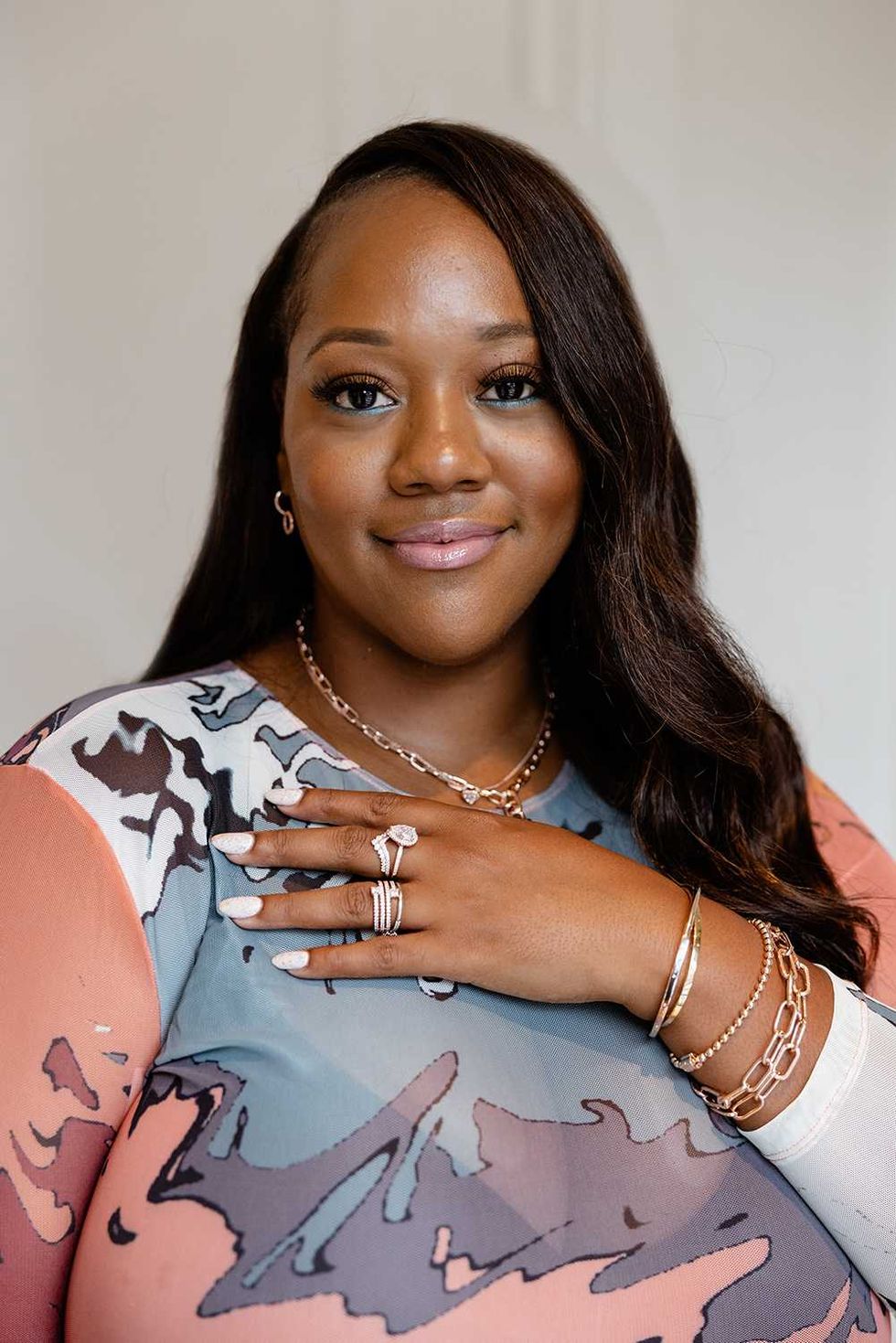
Content Creator Kristine Thompson
Courtesy
Kristine Thompson
Her Handle: @mskristine
Her Title: Content Creator
Who's That It Girl: Kristine Thompson is a fashion and lifestyle creator passionate about redefining style standards for plus-size women. Through her platforms, she shares inspiring fashion, beauty, and travel content that empowers her community to feel confident at any size.
Her "Yes, And" Statement: "Yes, I celebrate style and I challenge the idea that beauty comes in one size."
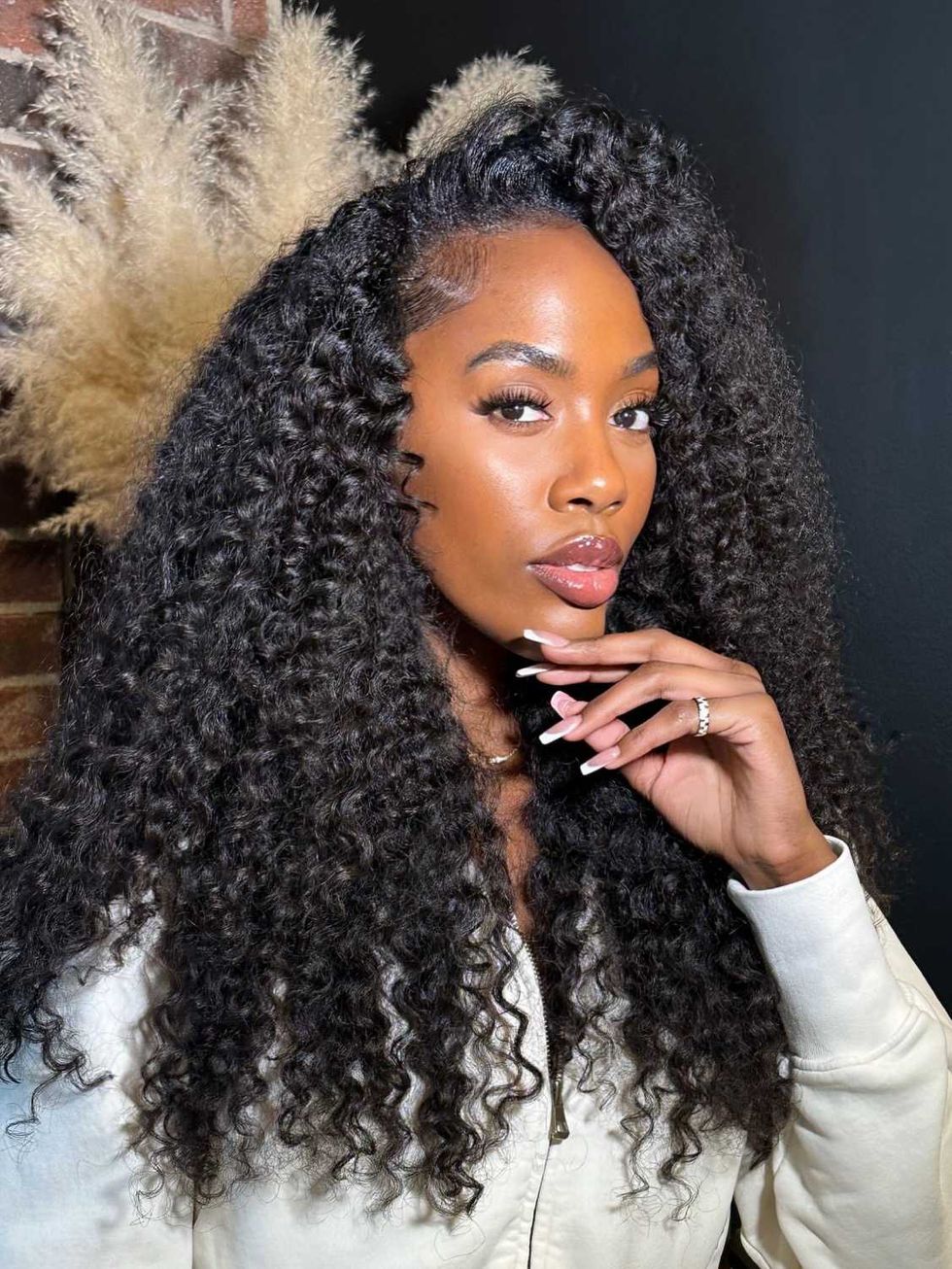
Beauty, Lifestyle and Fashion Creator Crystal Nicole
Courtesy
Crystal Nicole
Her Handle: @iamcrystalnicolee
Her Title: Beauty, Lifestyle and Fashion Creator
Who's That It Girl: Crystal Nicole’s storytelling moves between vulnerability and victory. We honor her for her ability to inspire others to be unapologetically themselves despite the pressures of social media and for crafting narratives that empower women to rewrite their own anthems.
Tap into the full It Girl 100 Class of 2025 and meet all the women changing game this year and beyond. See the full list here.
Featured image by xoStaff

